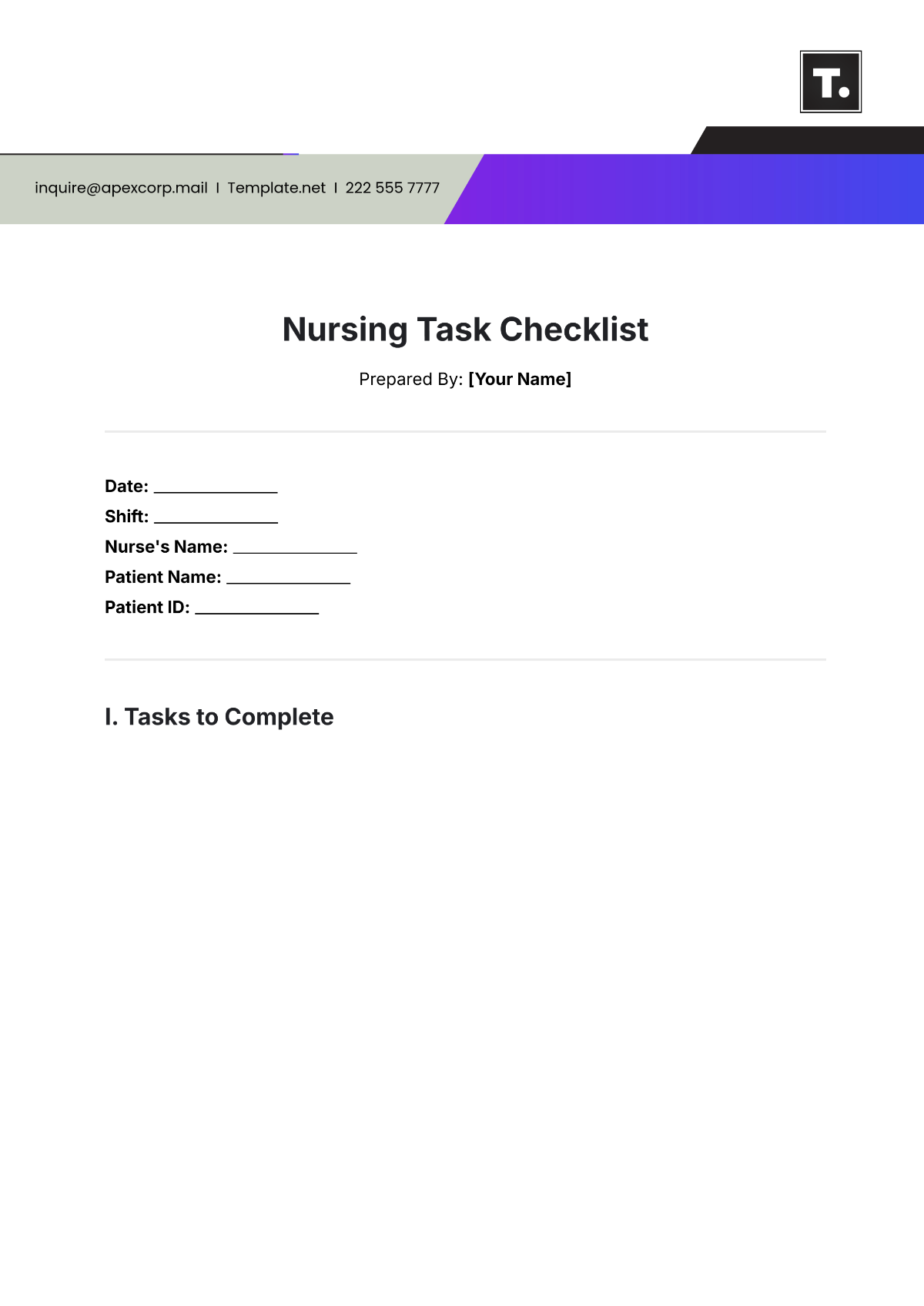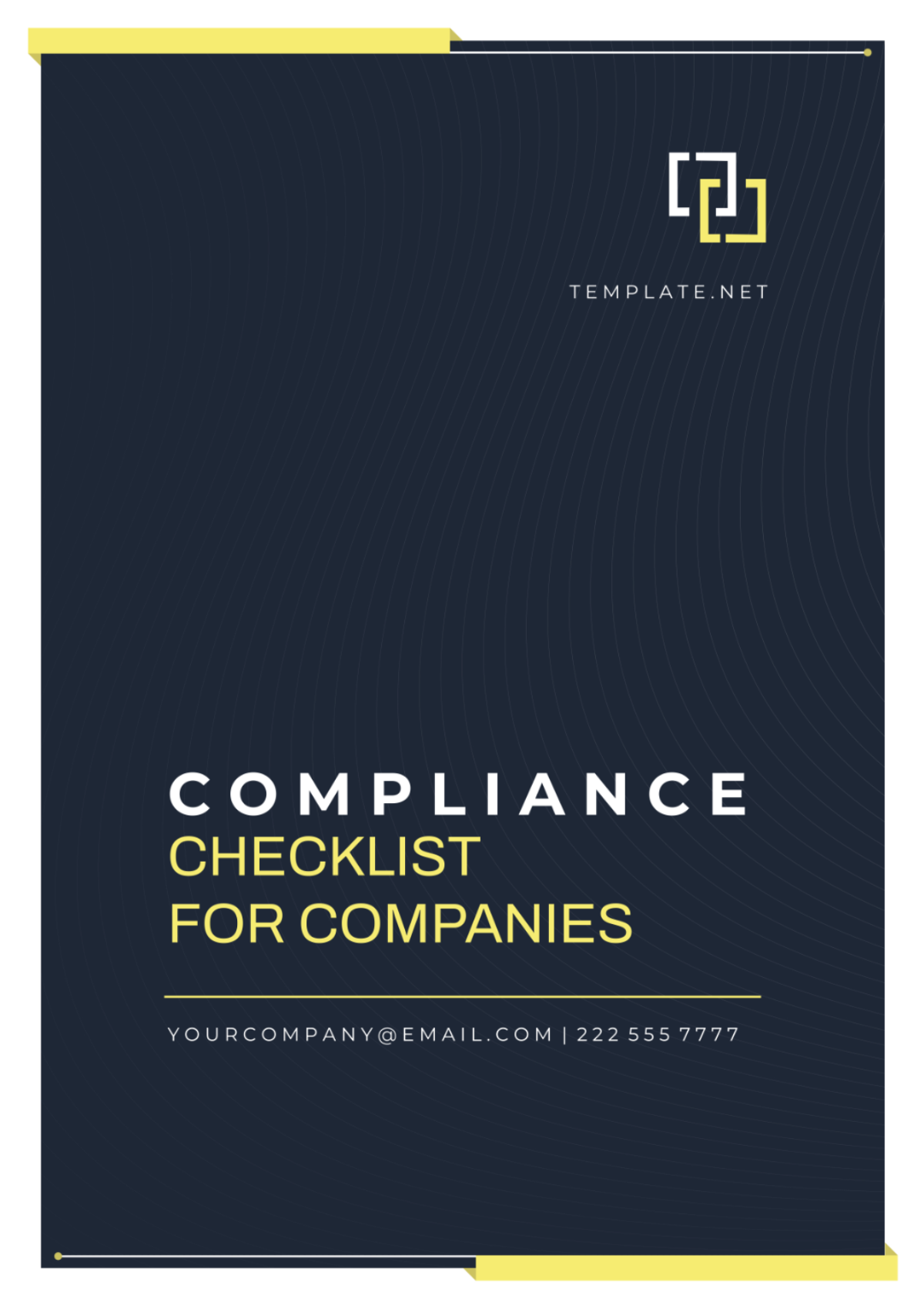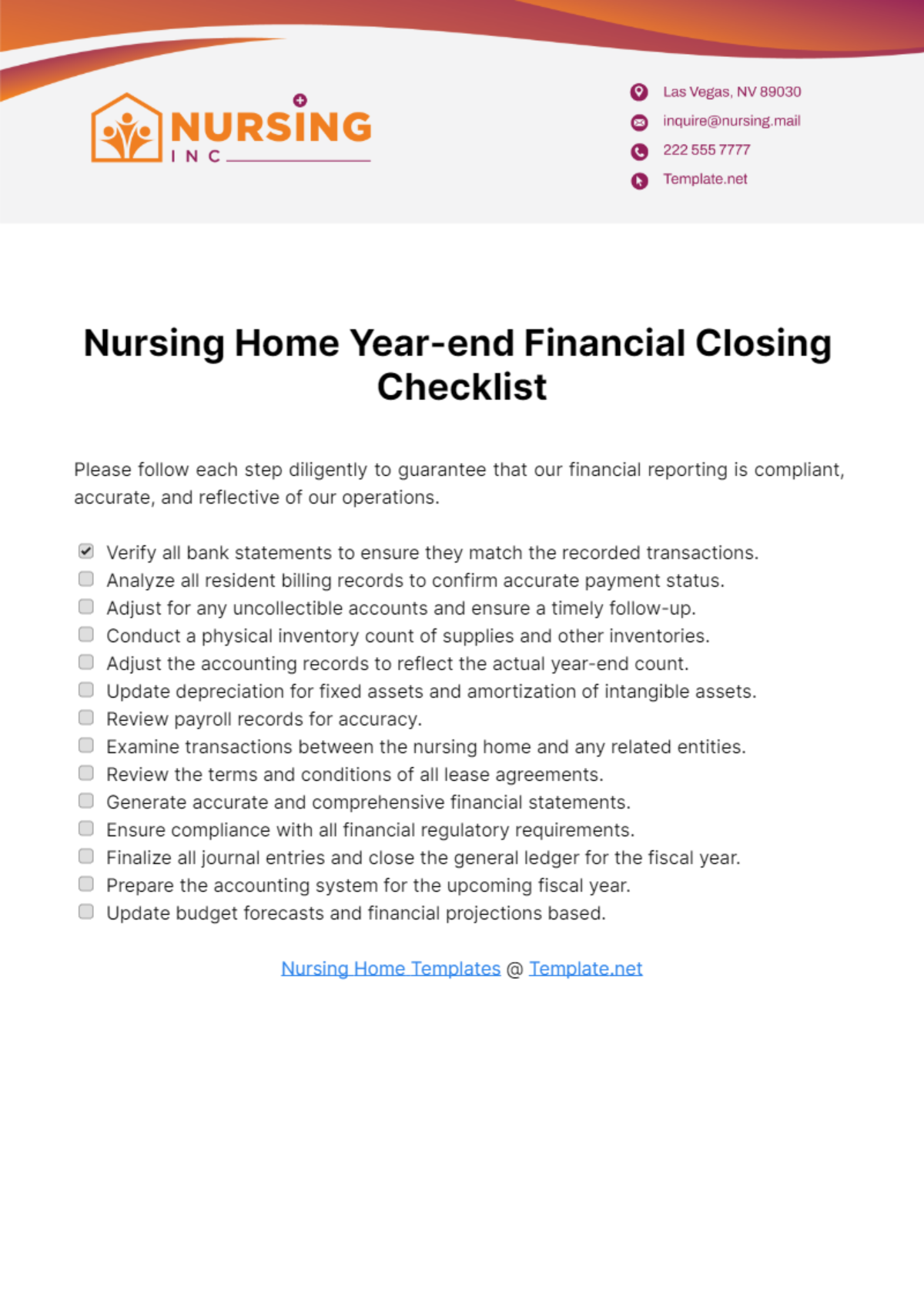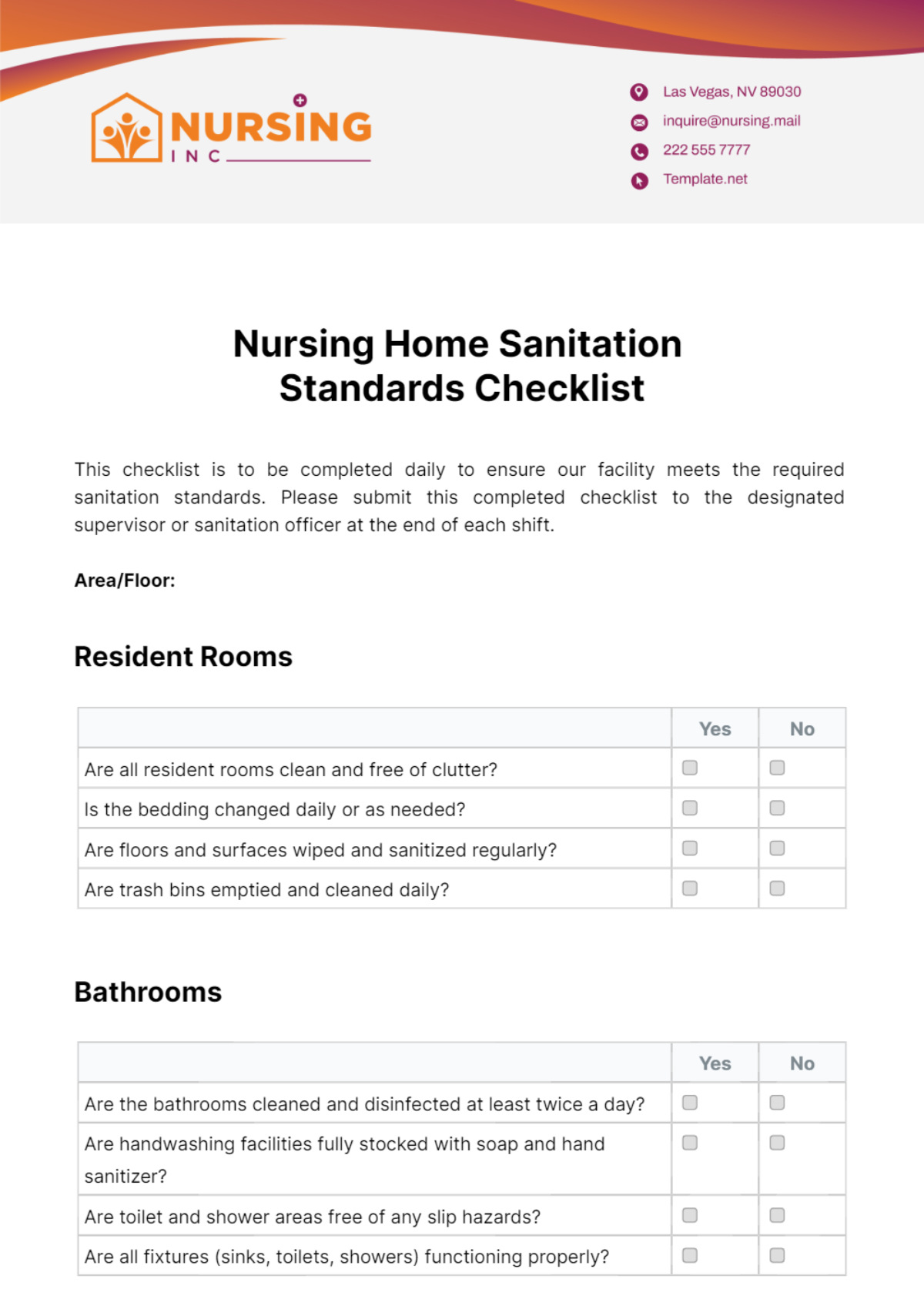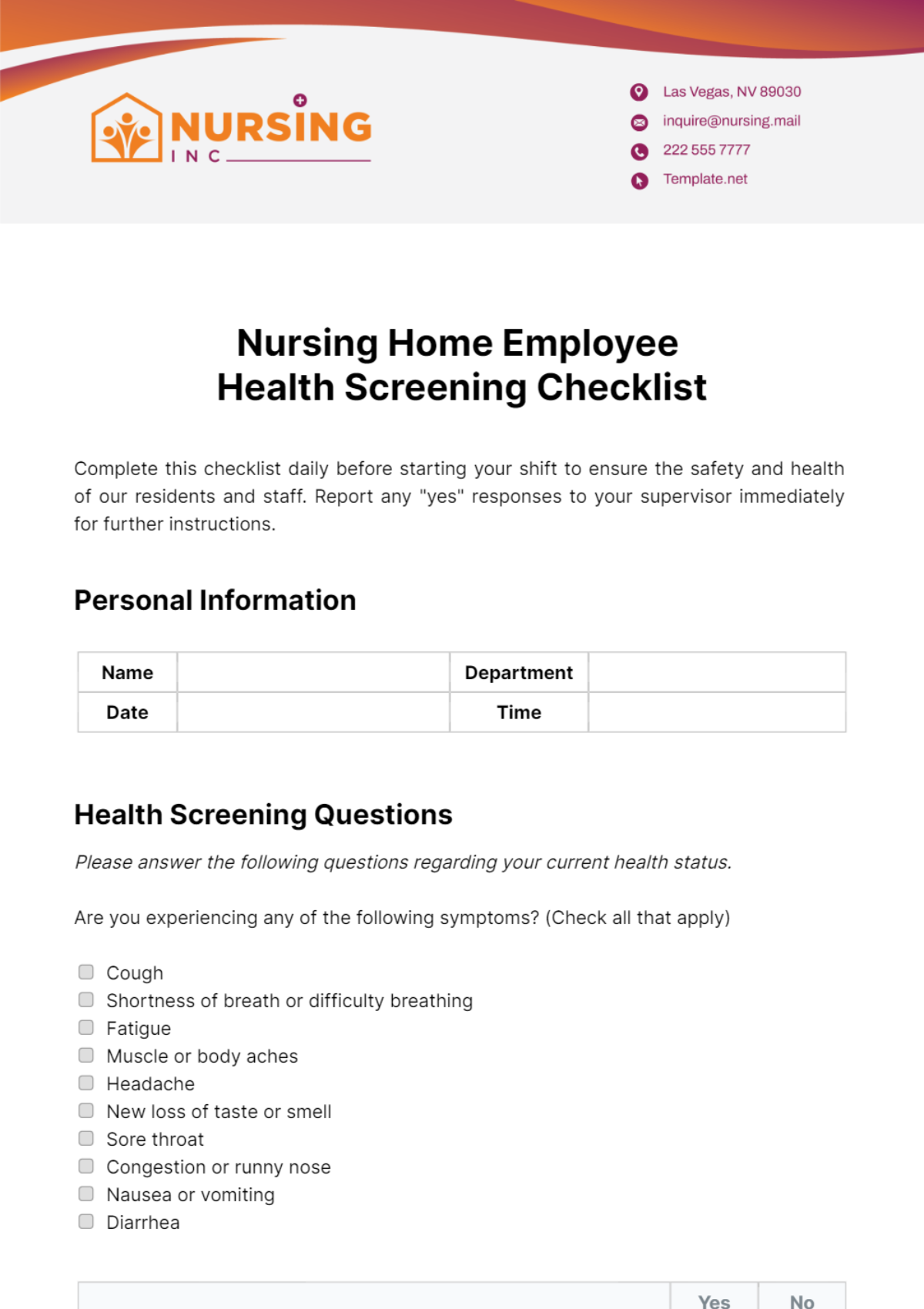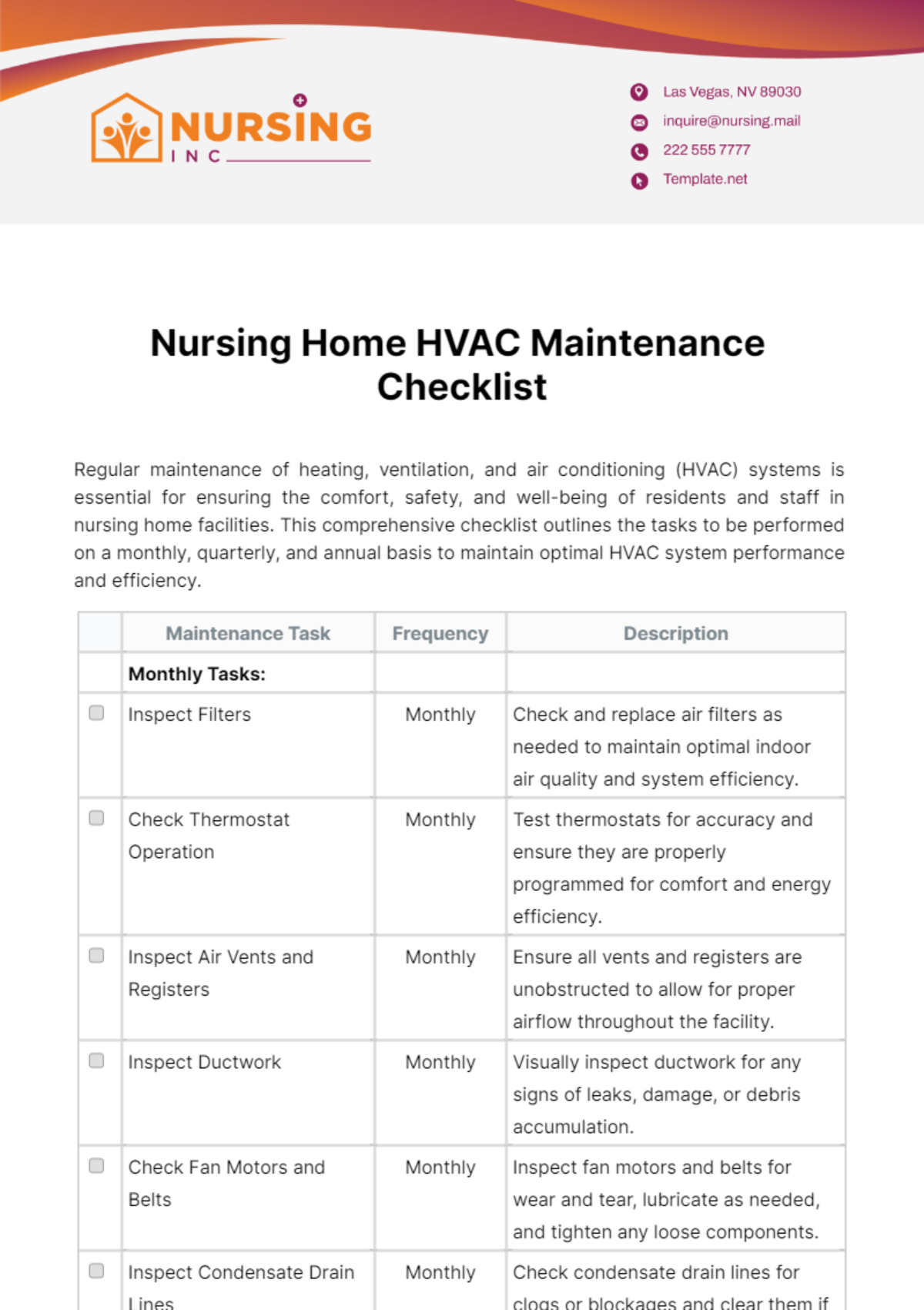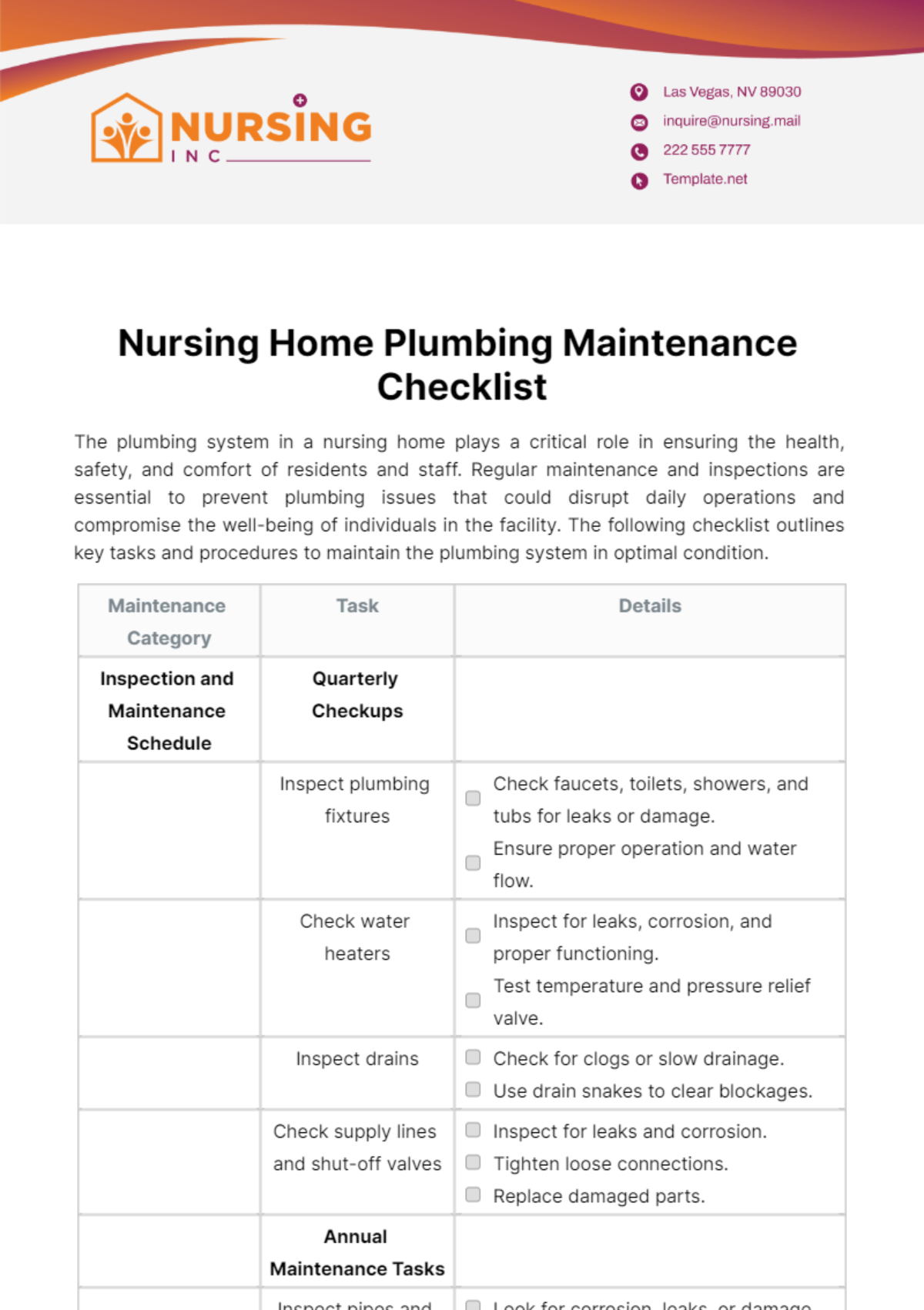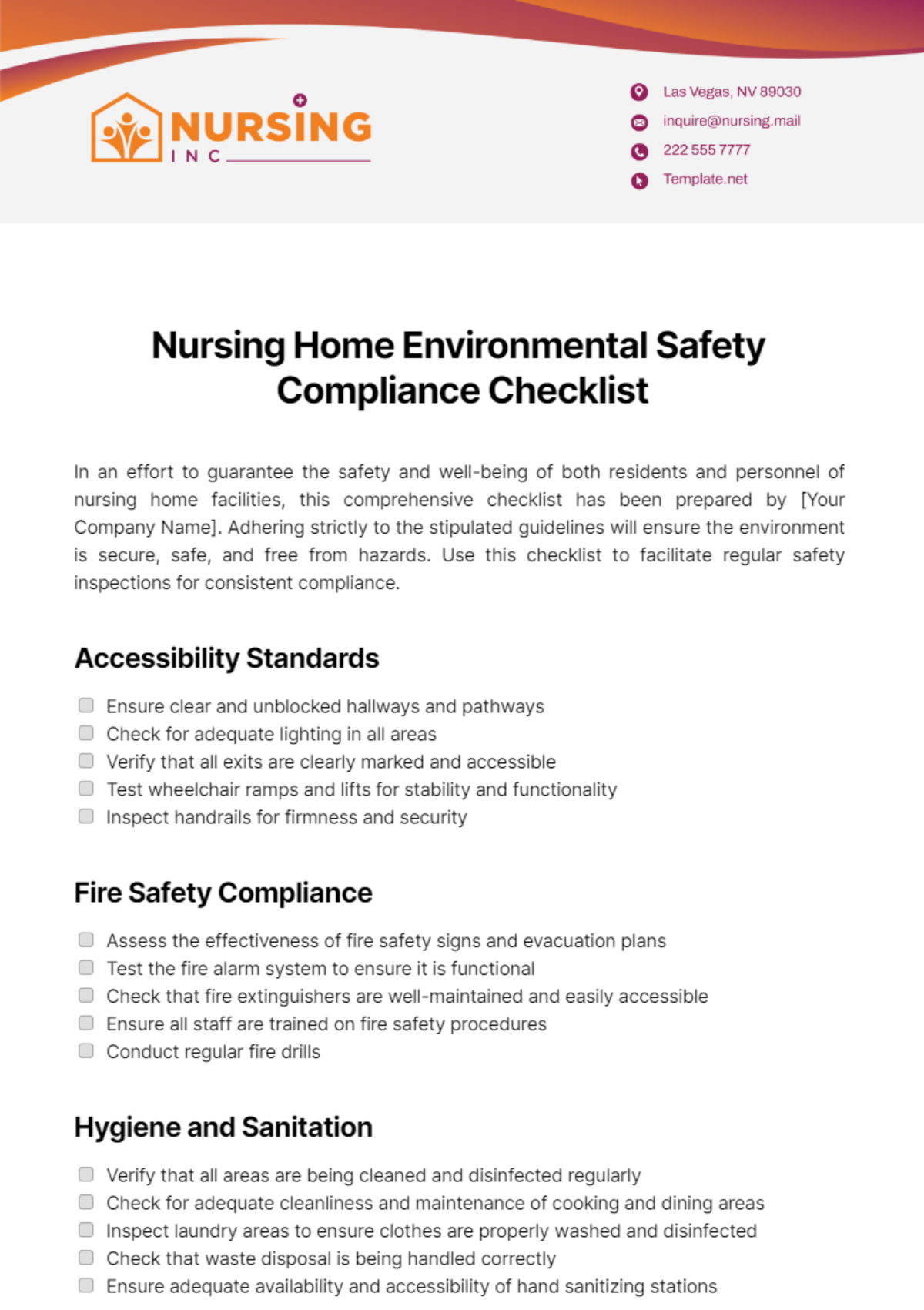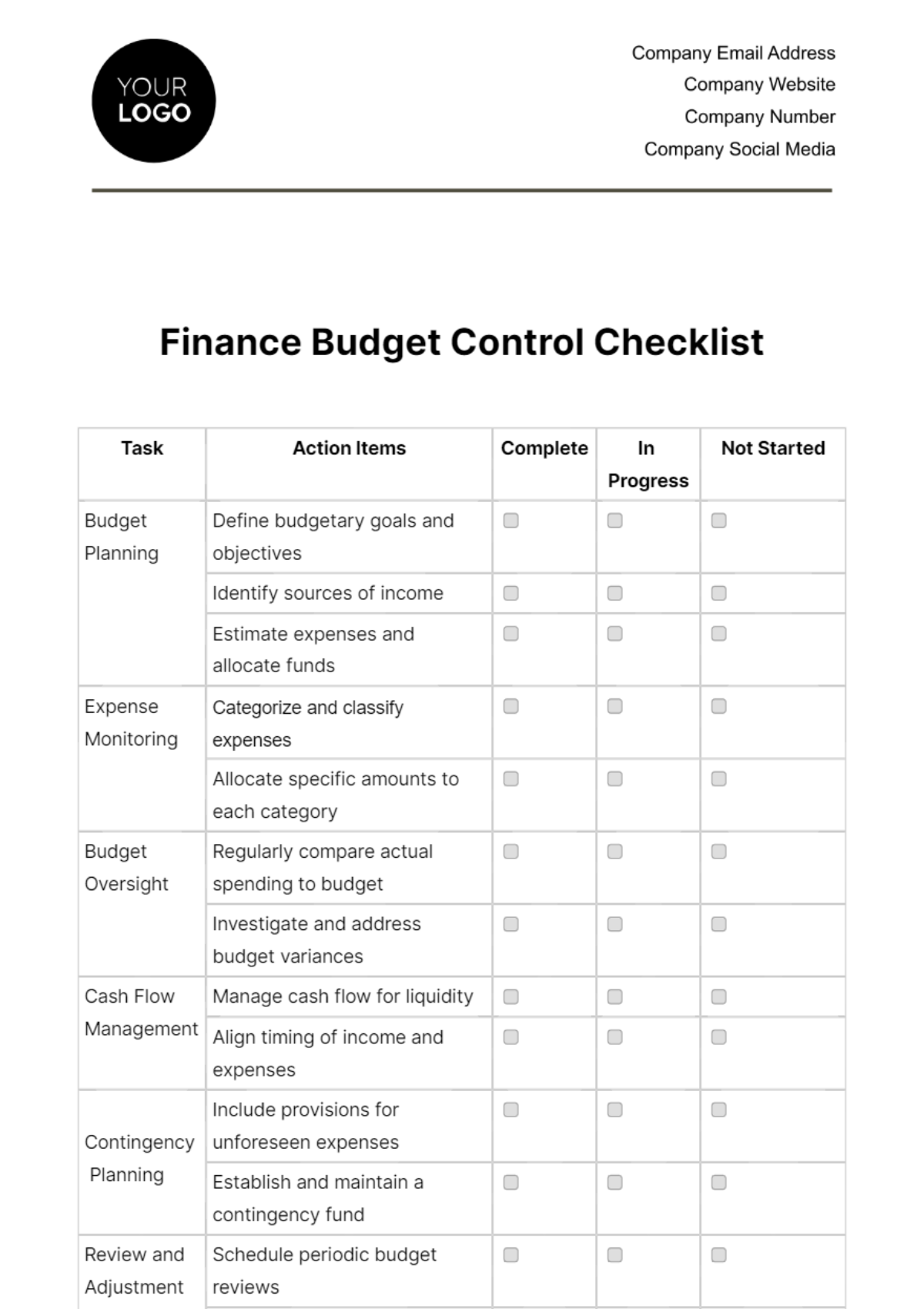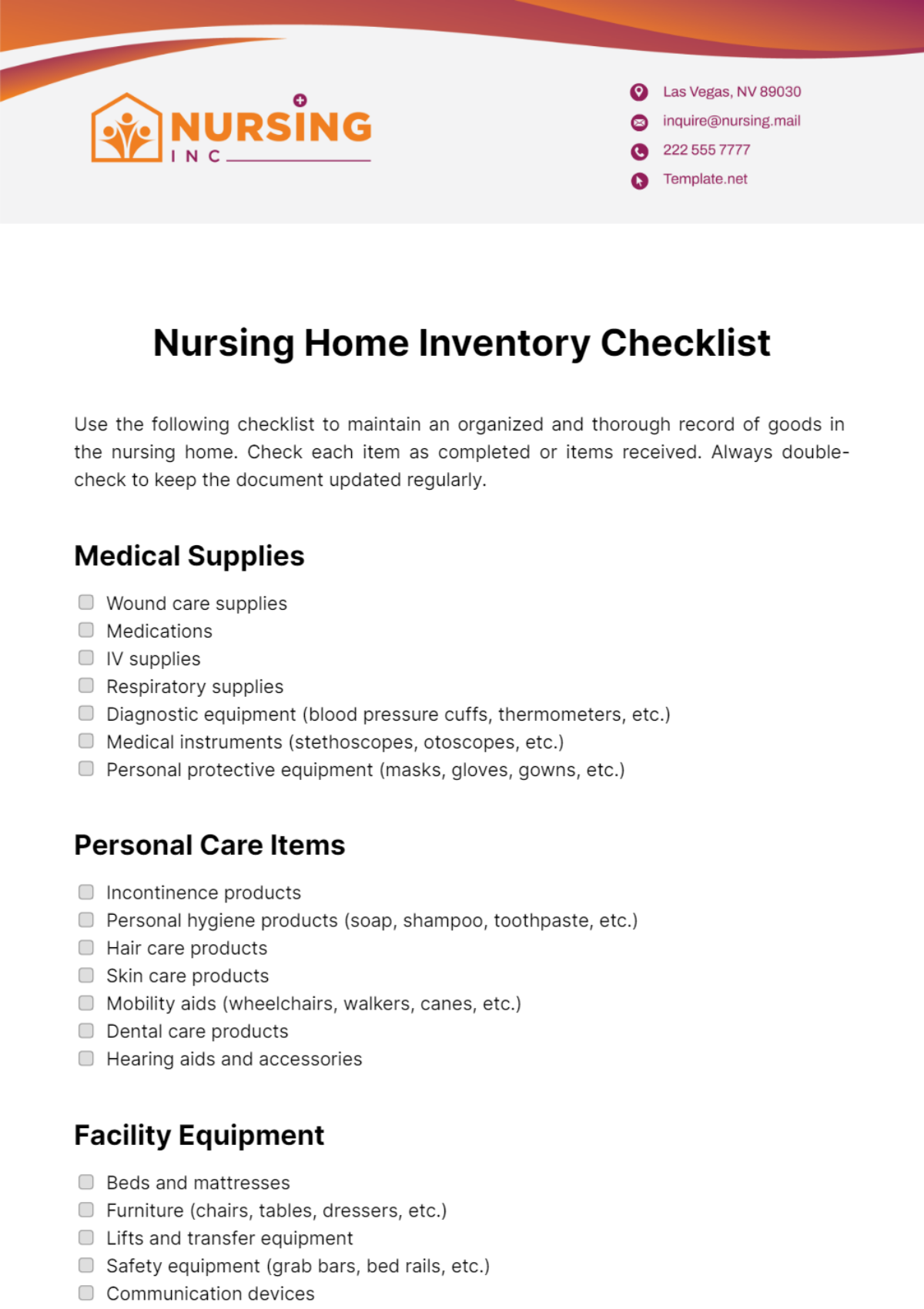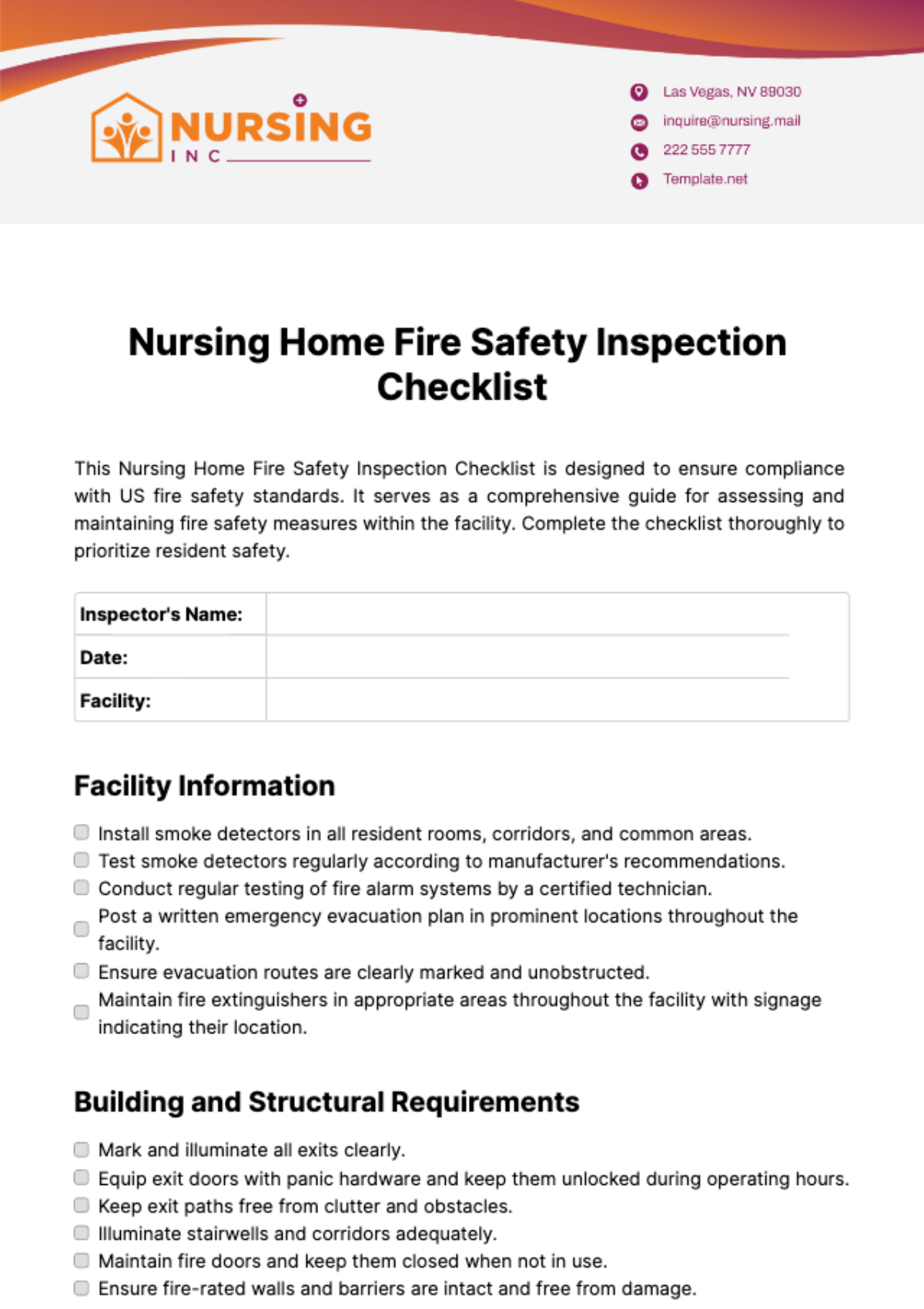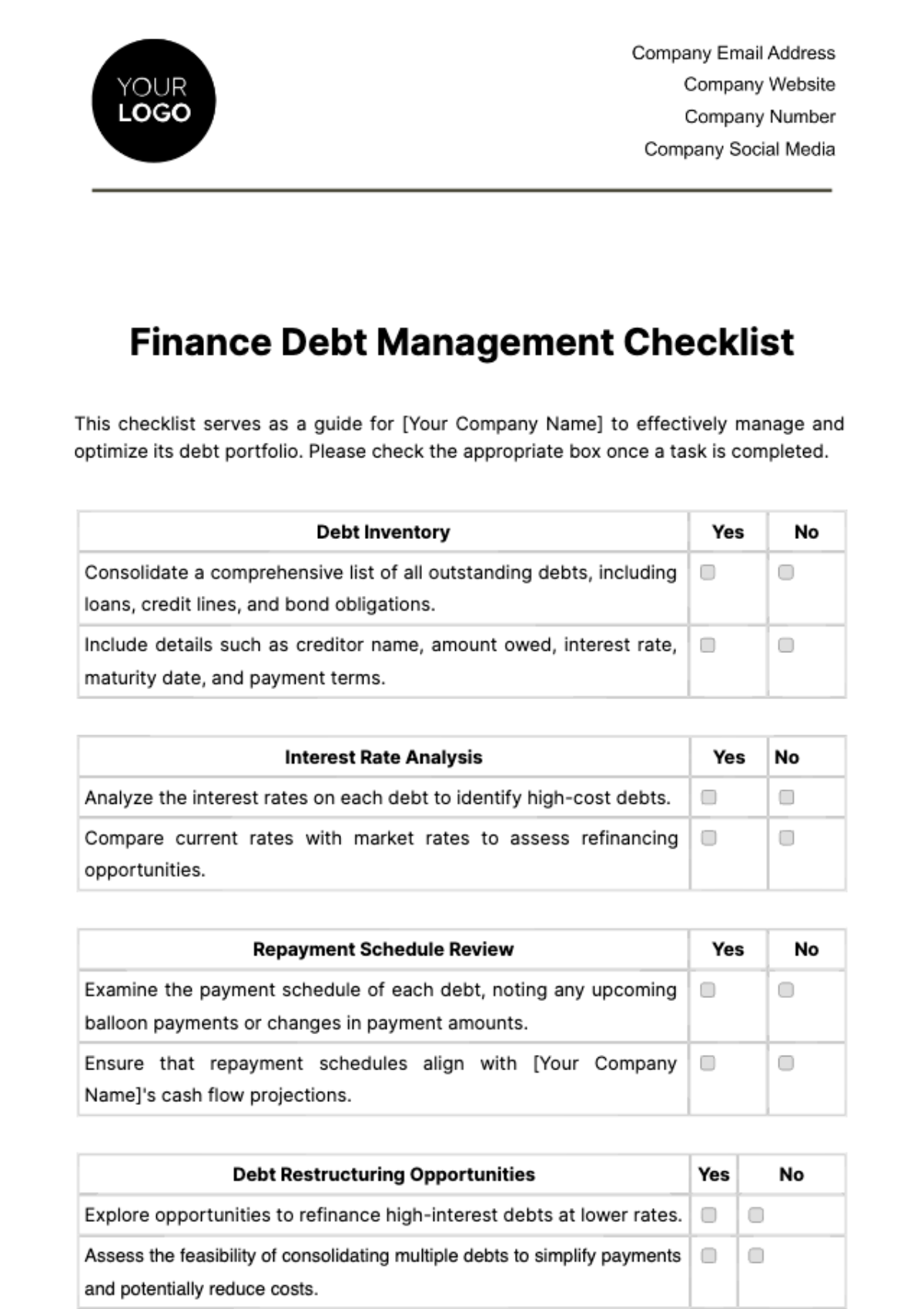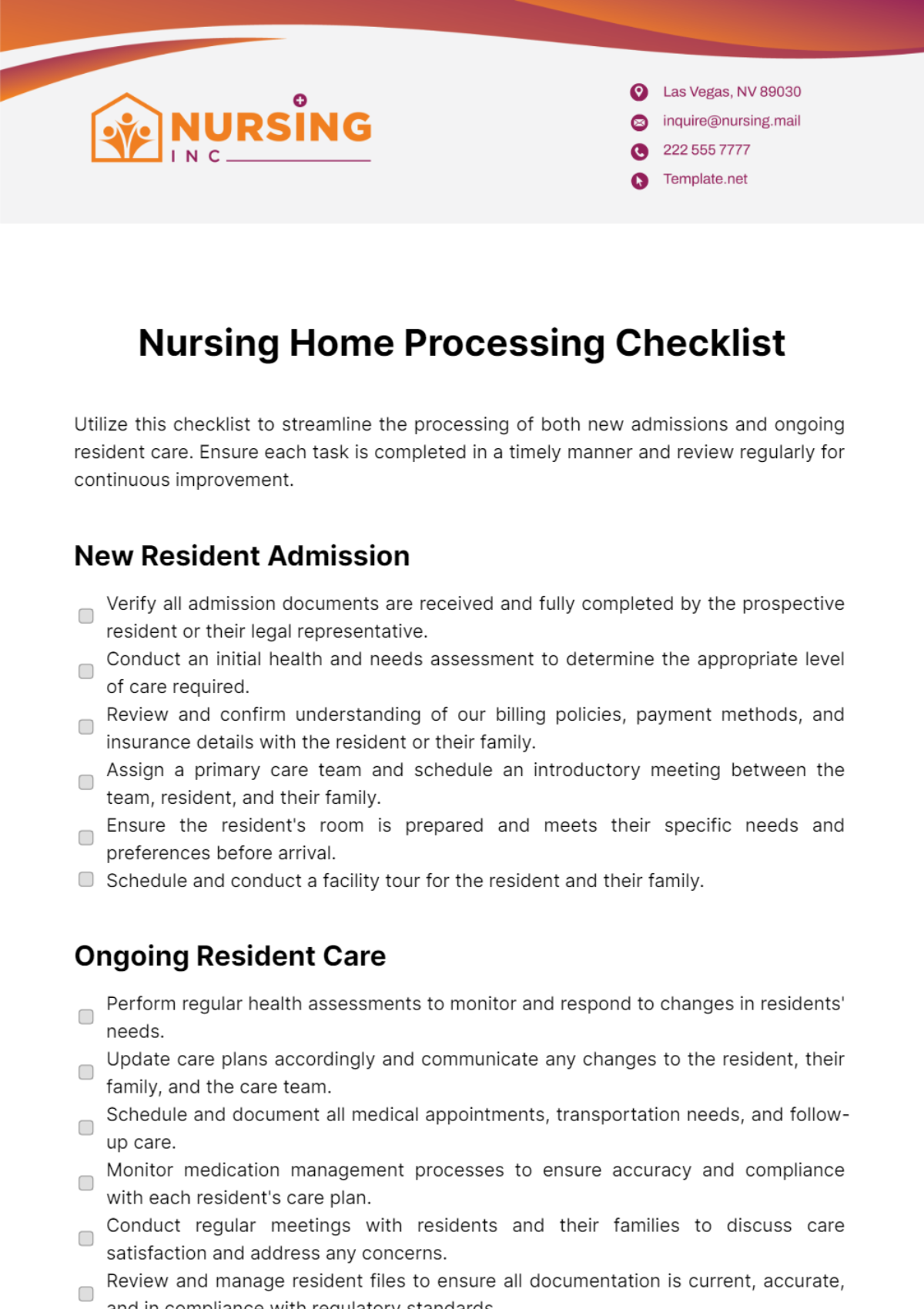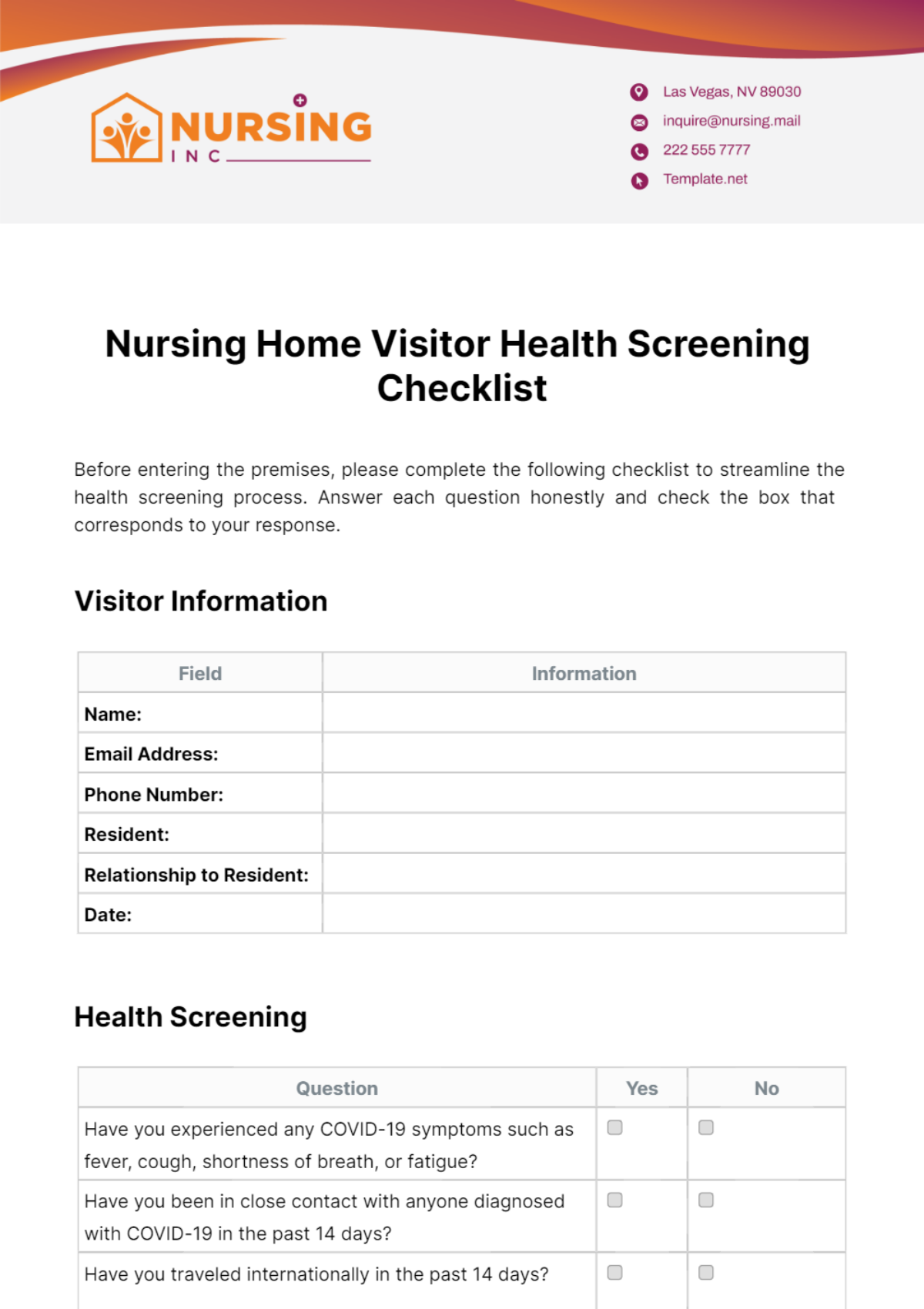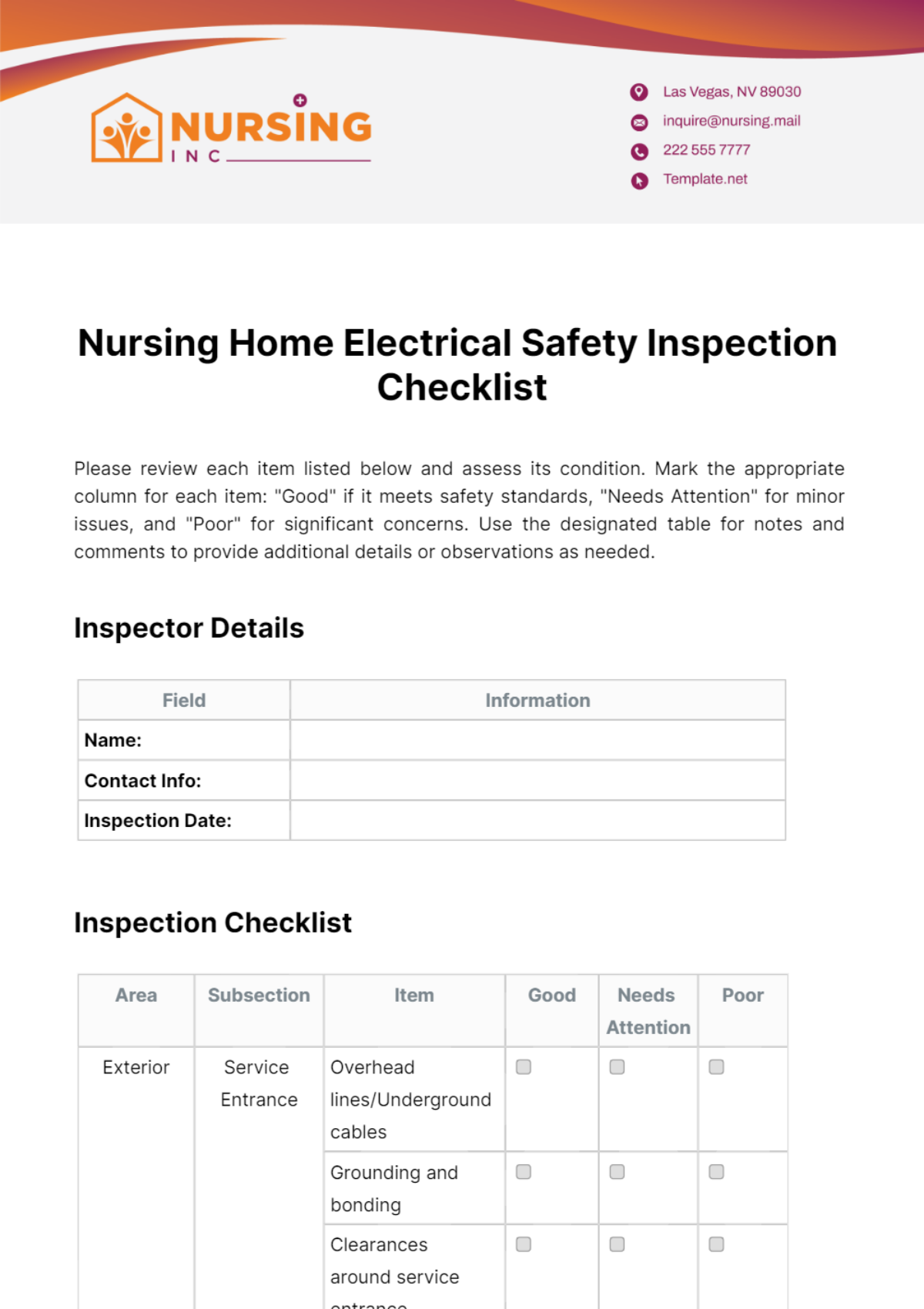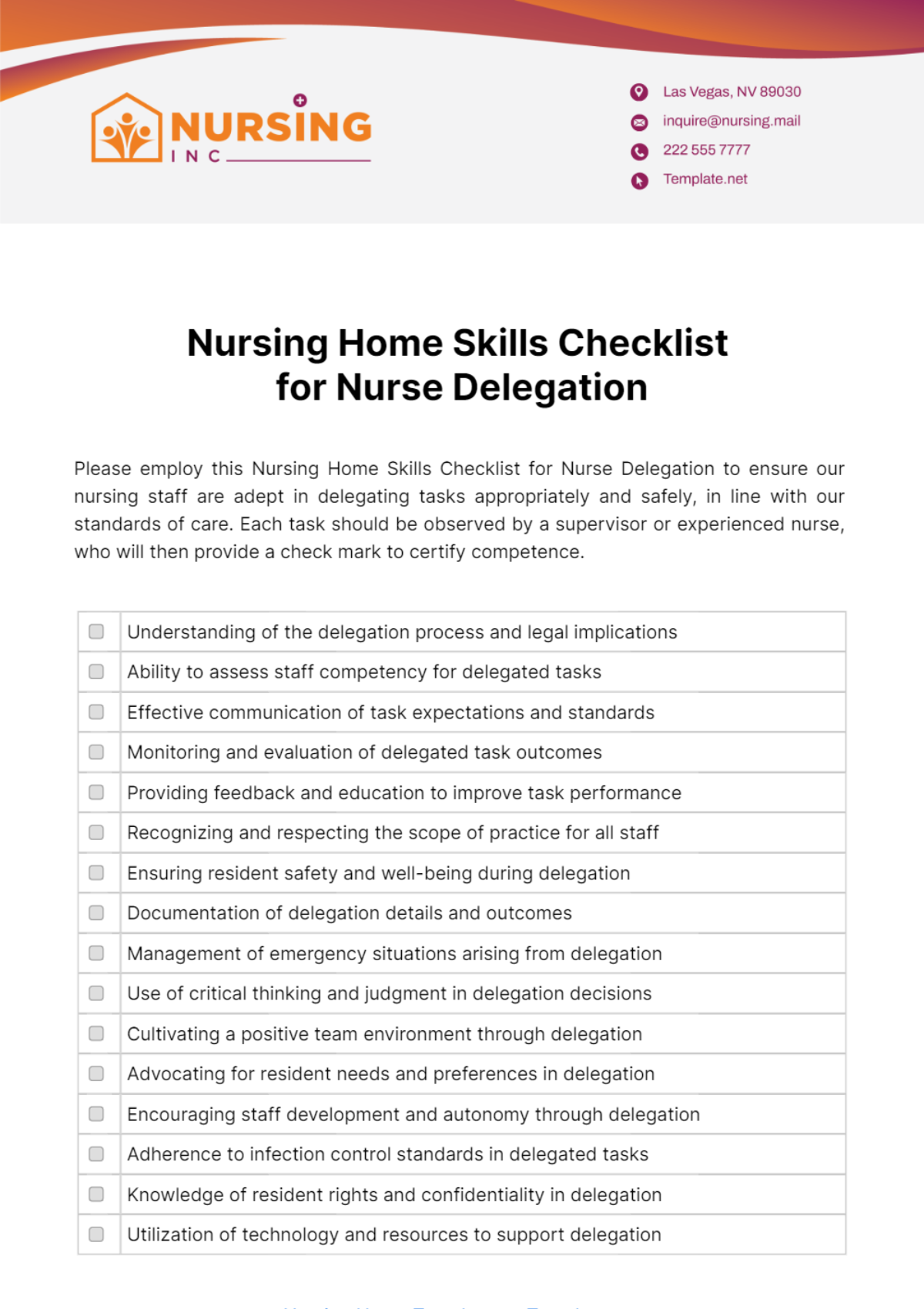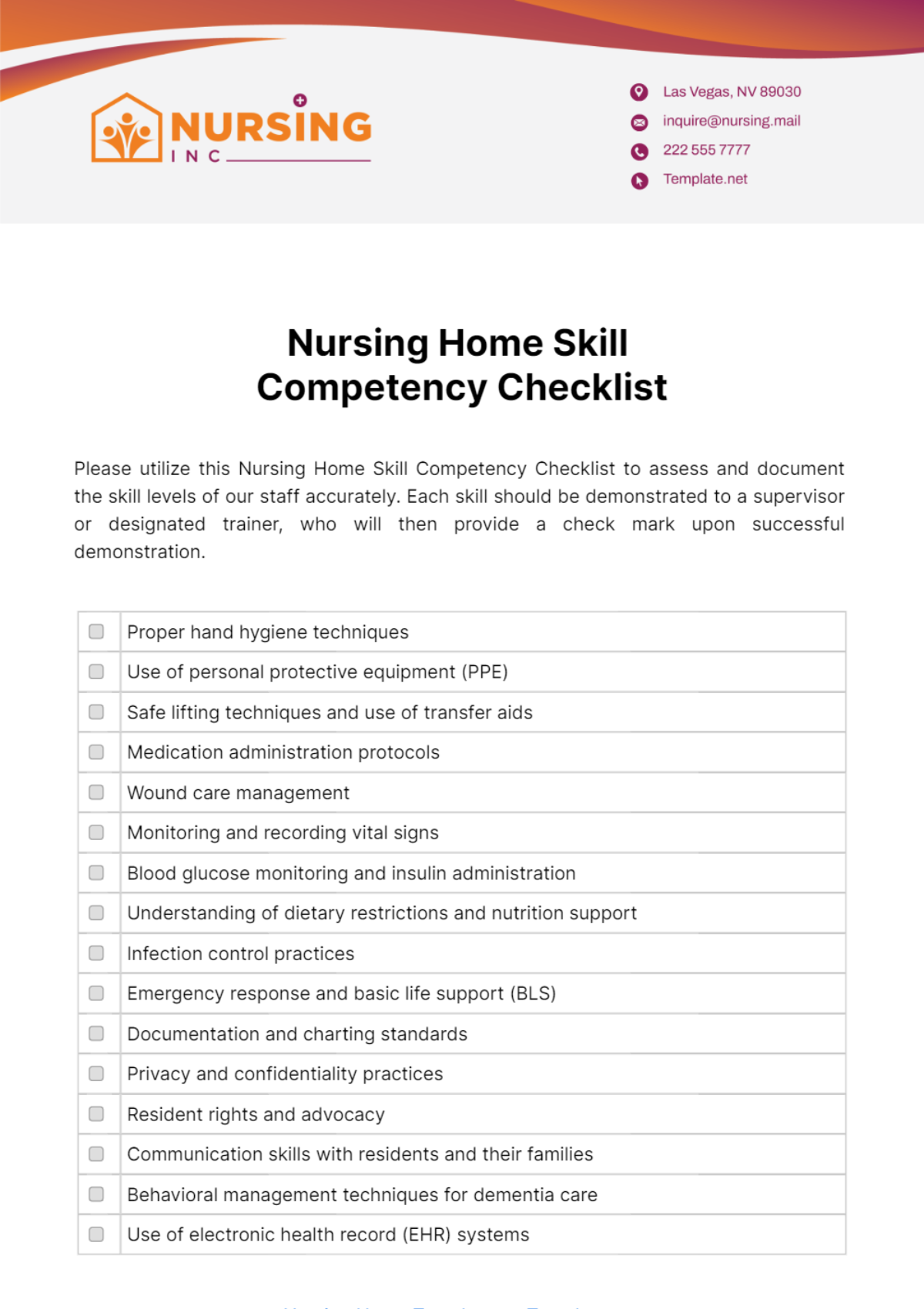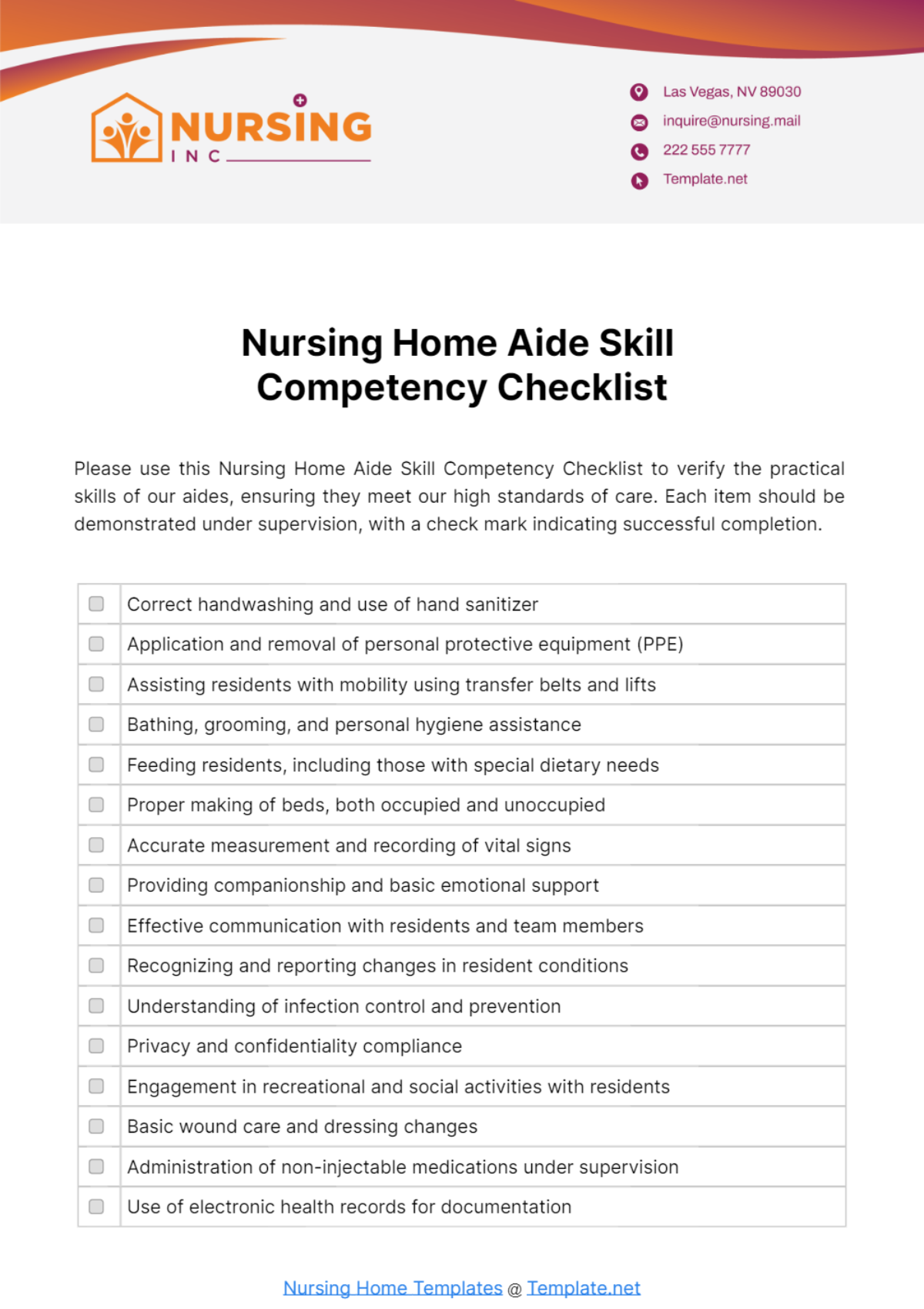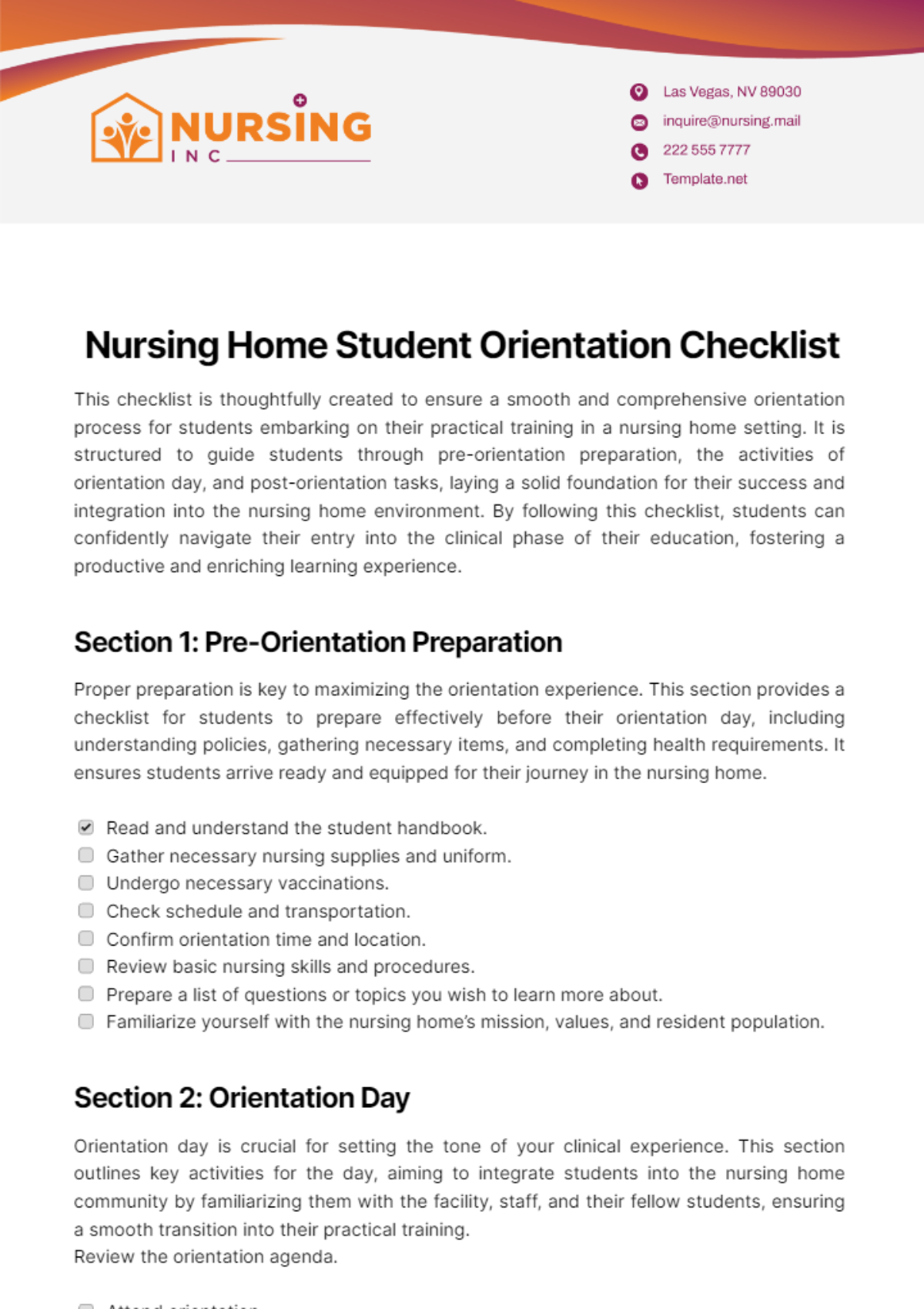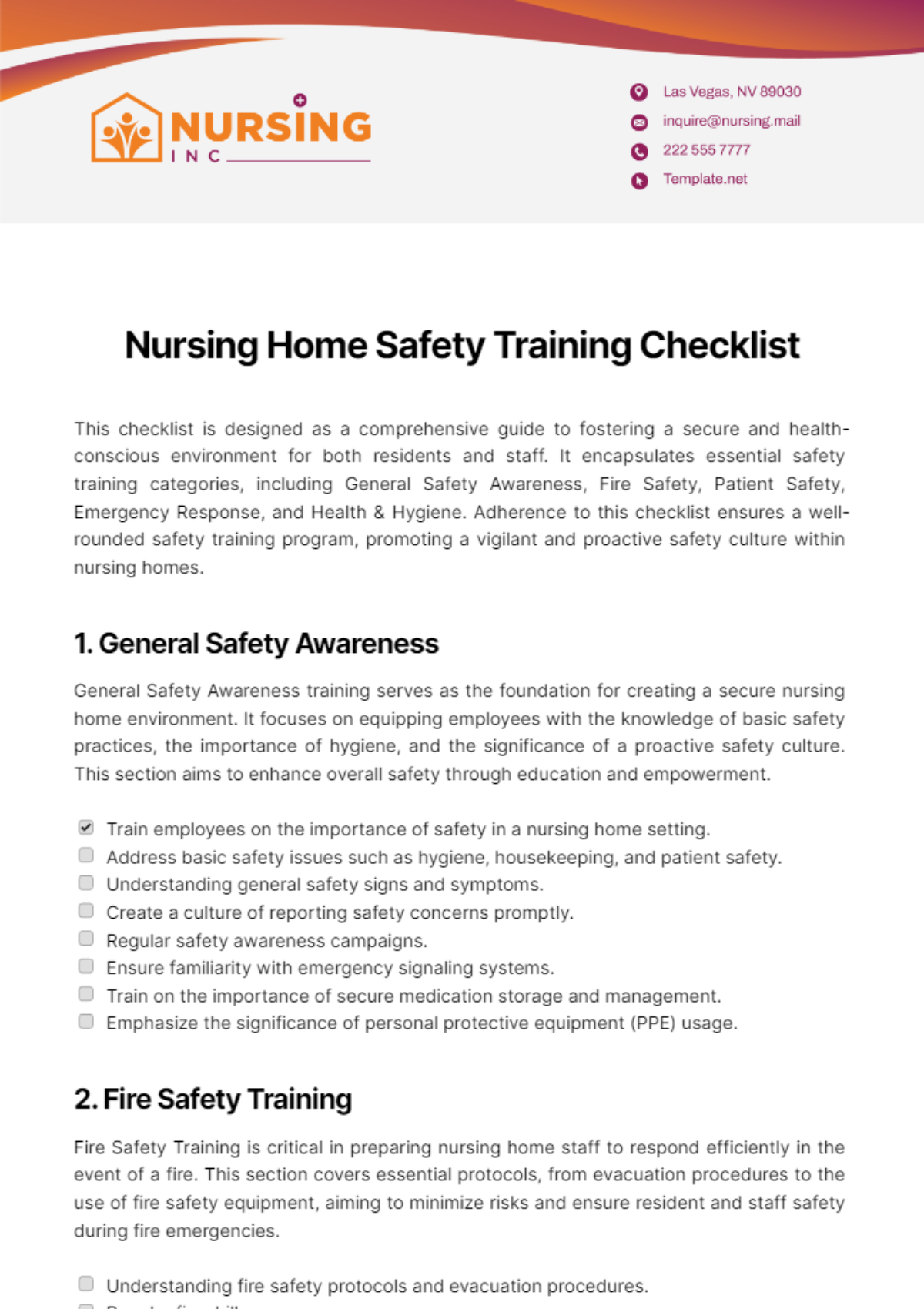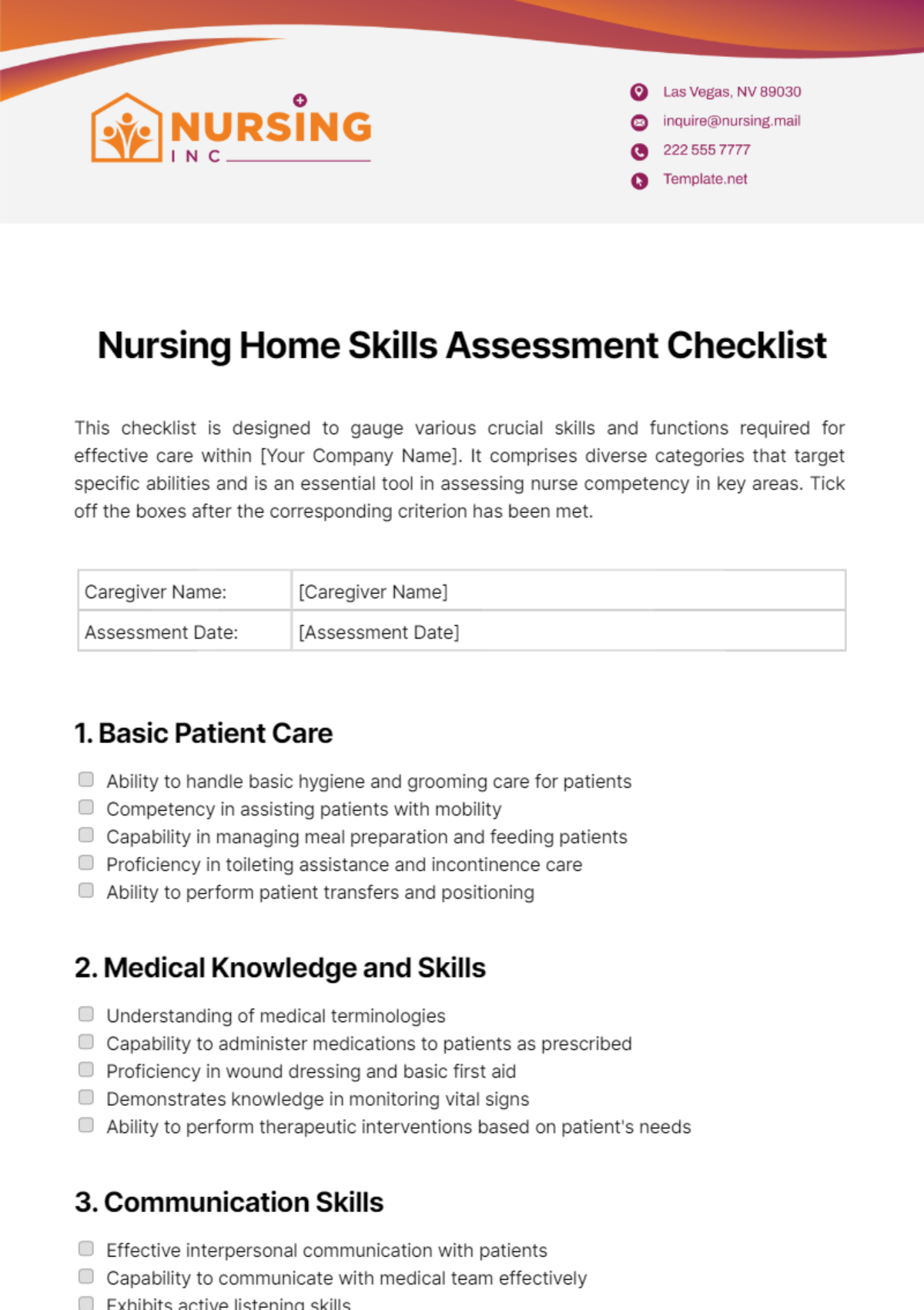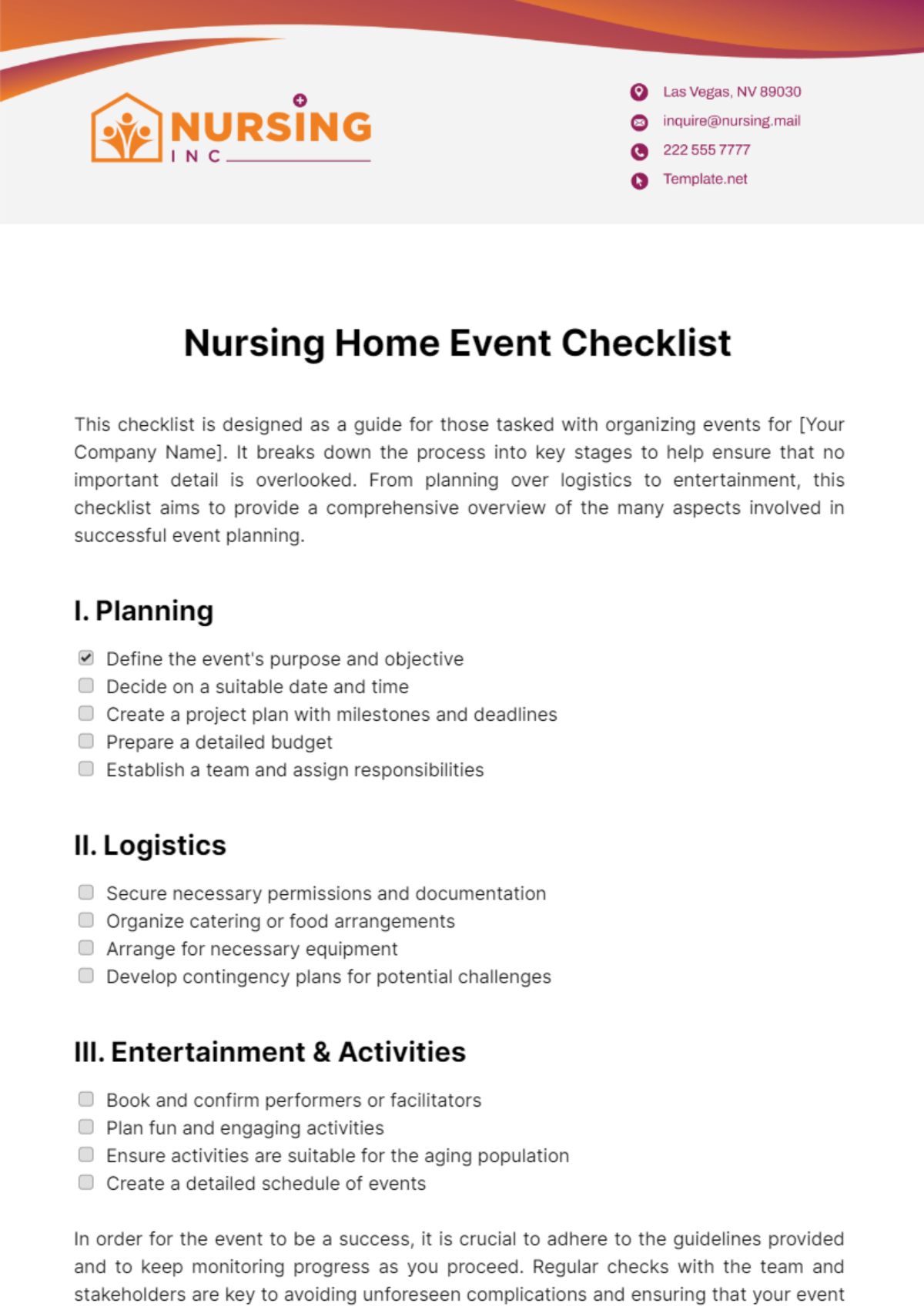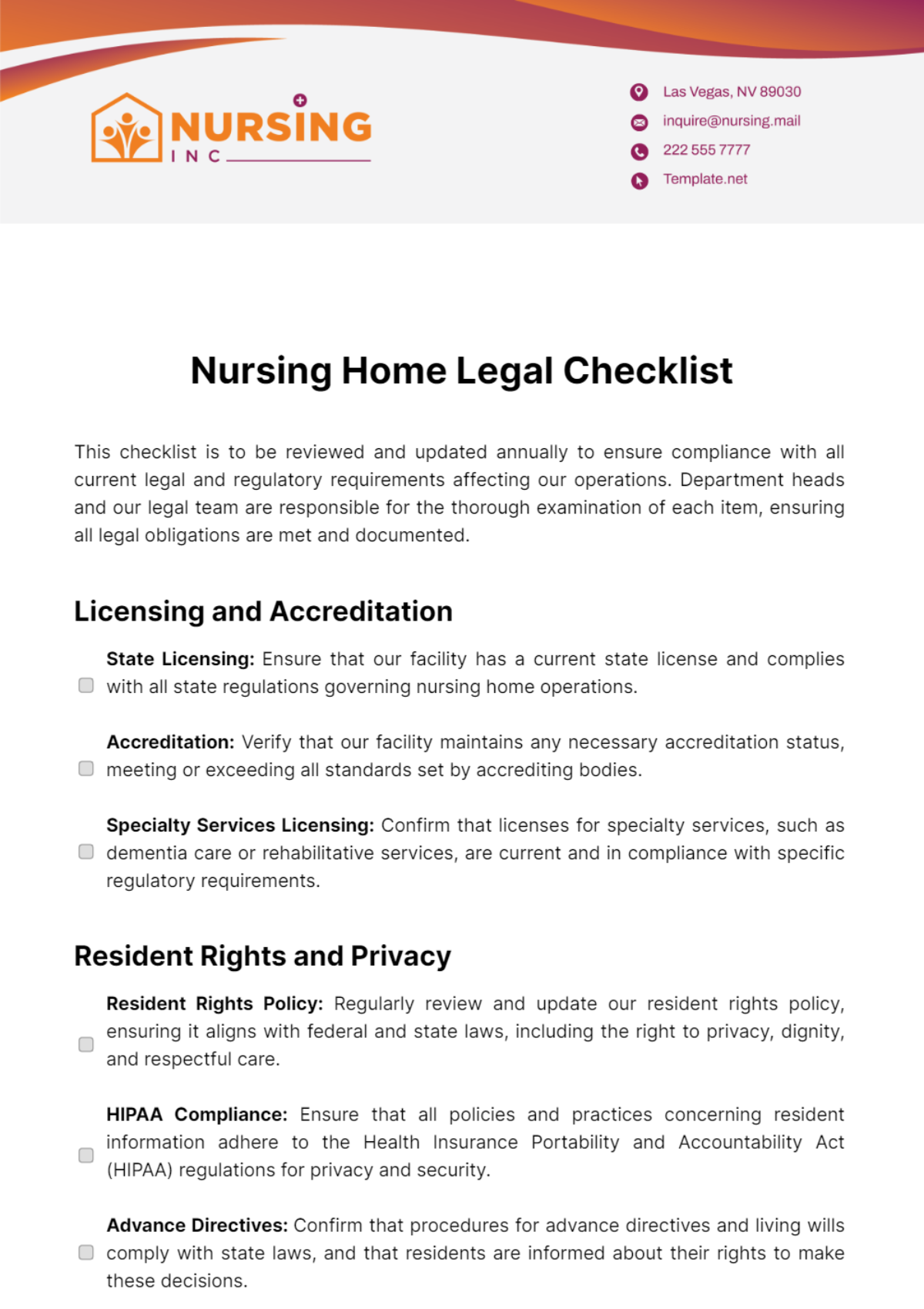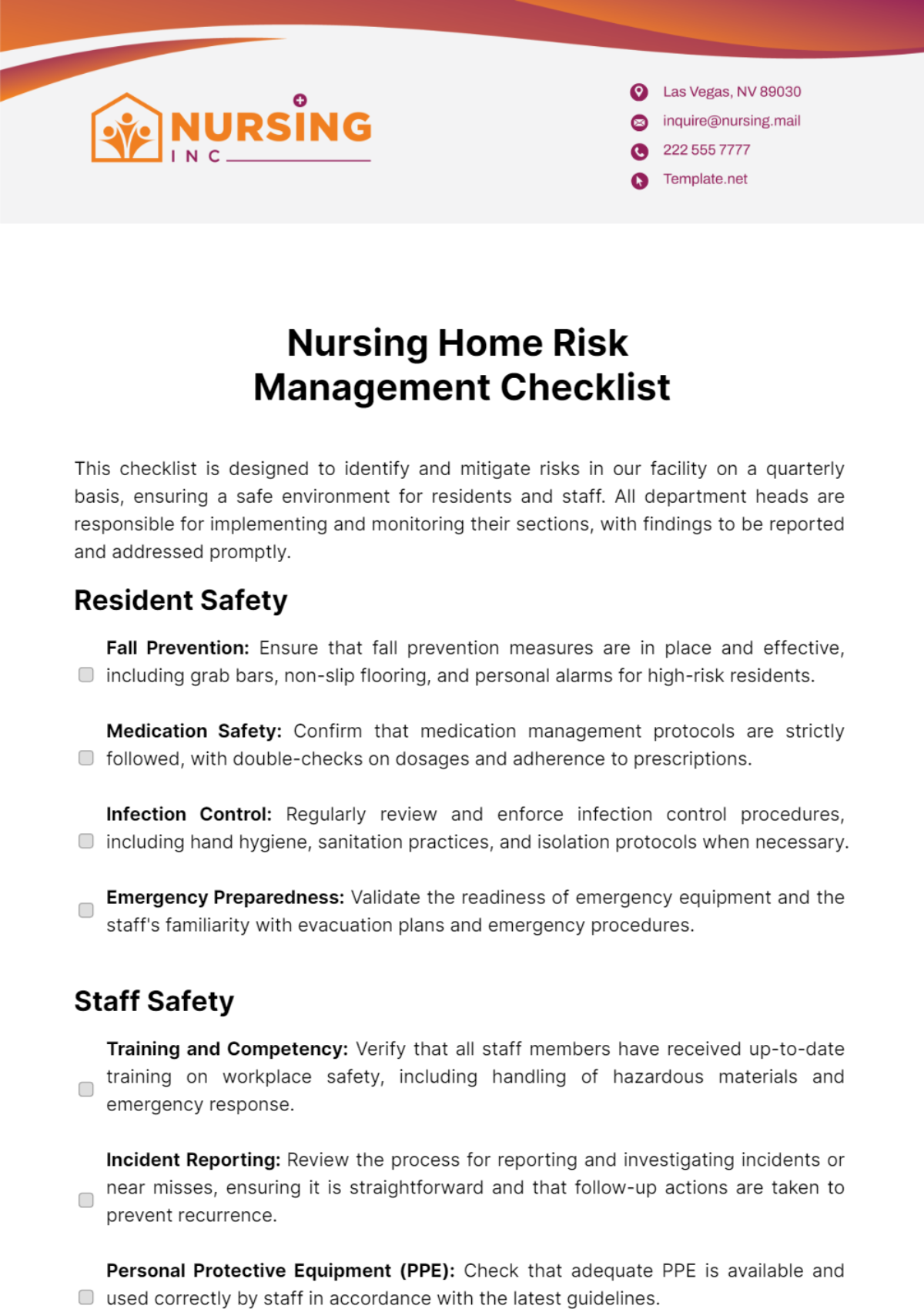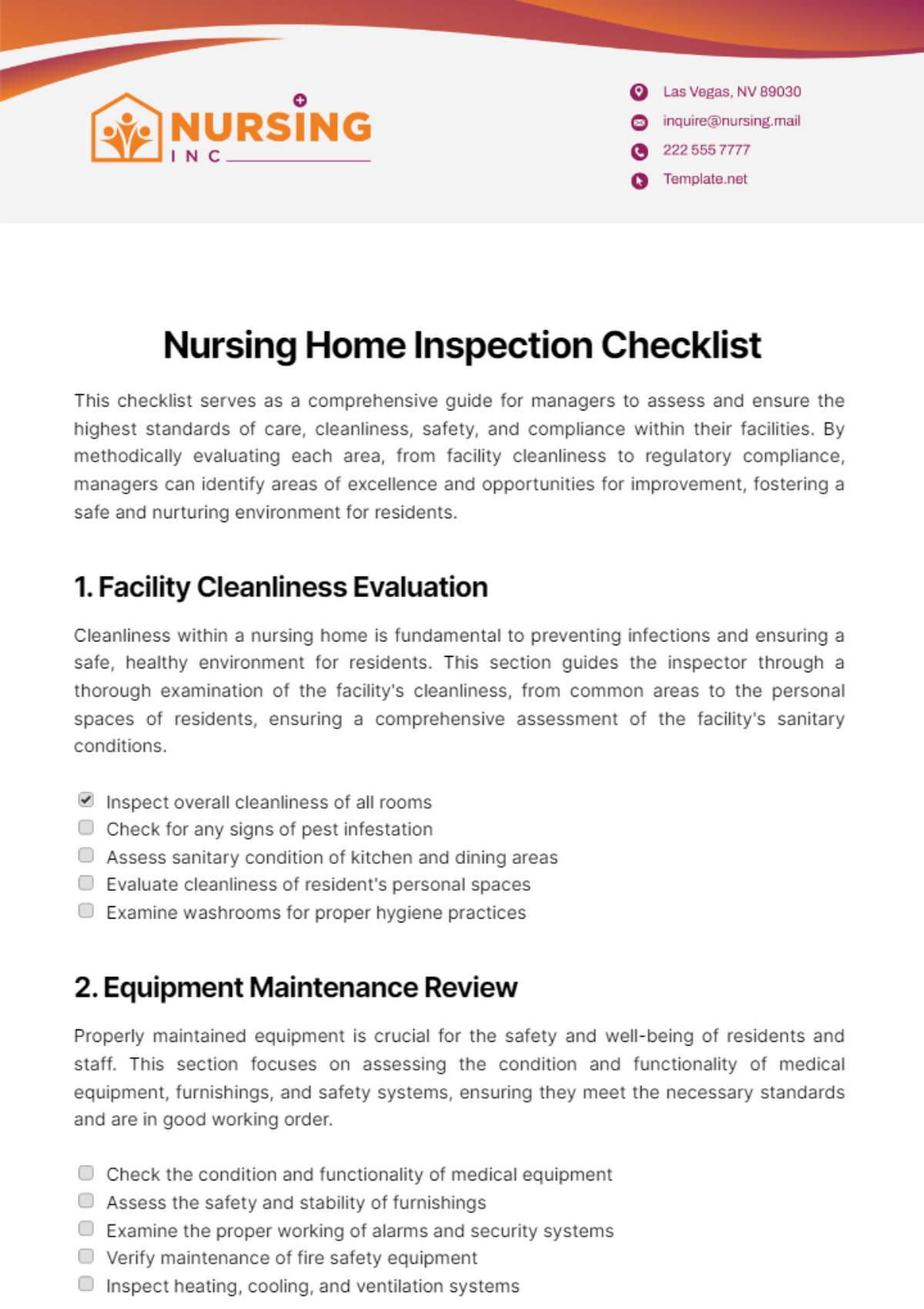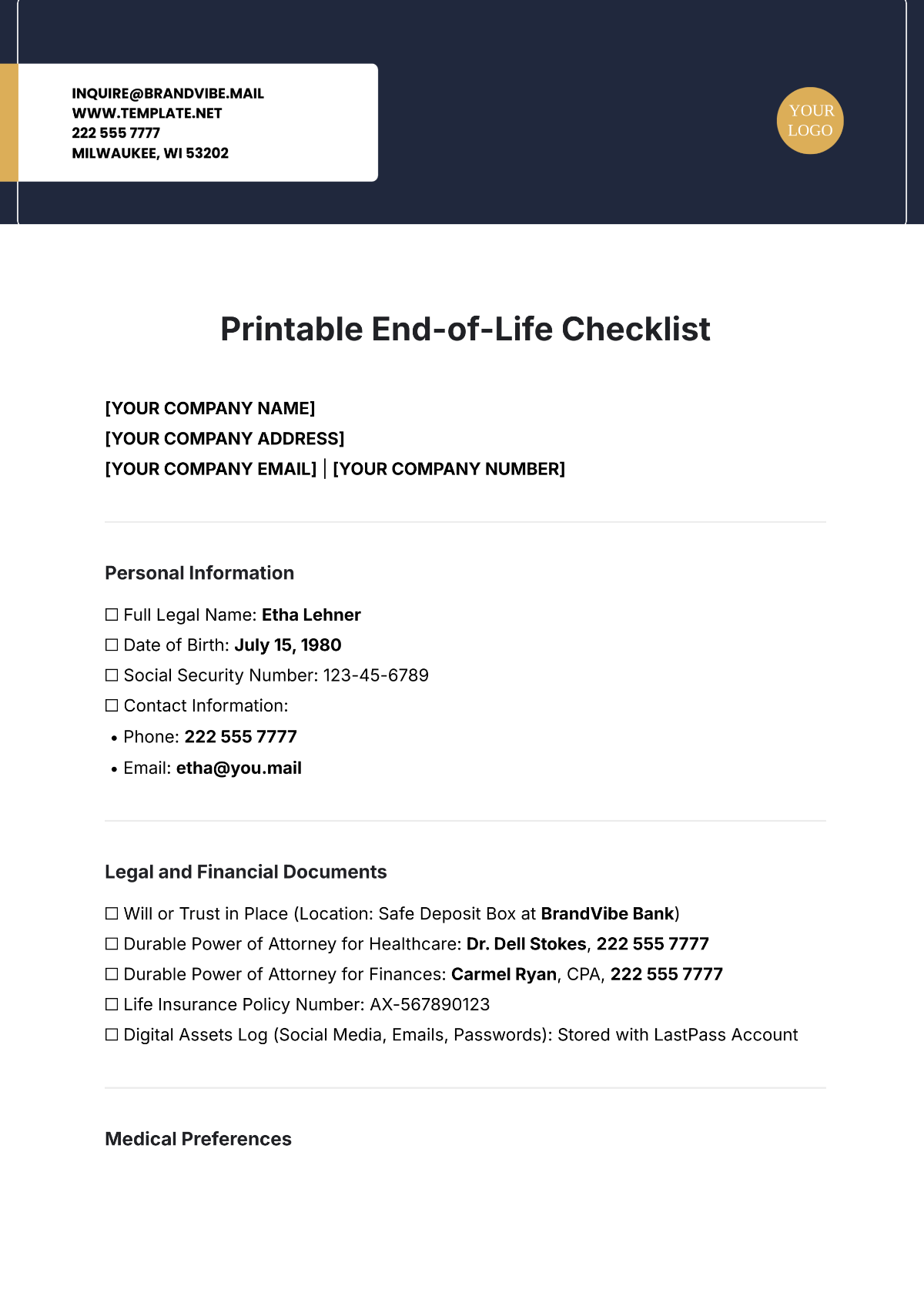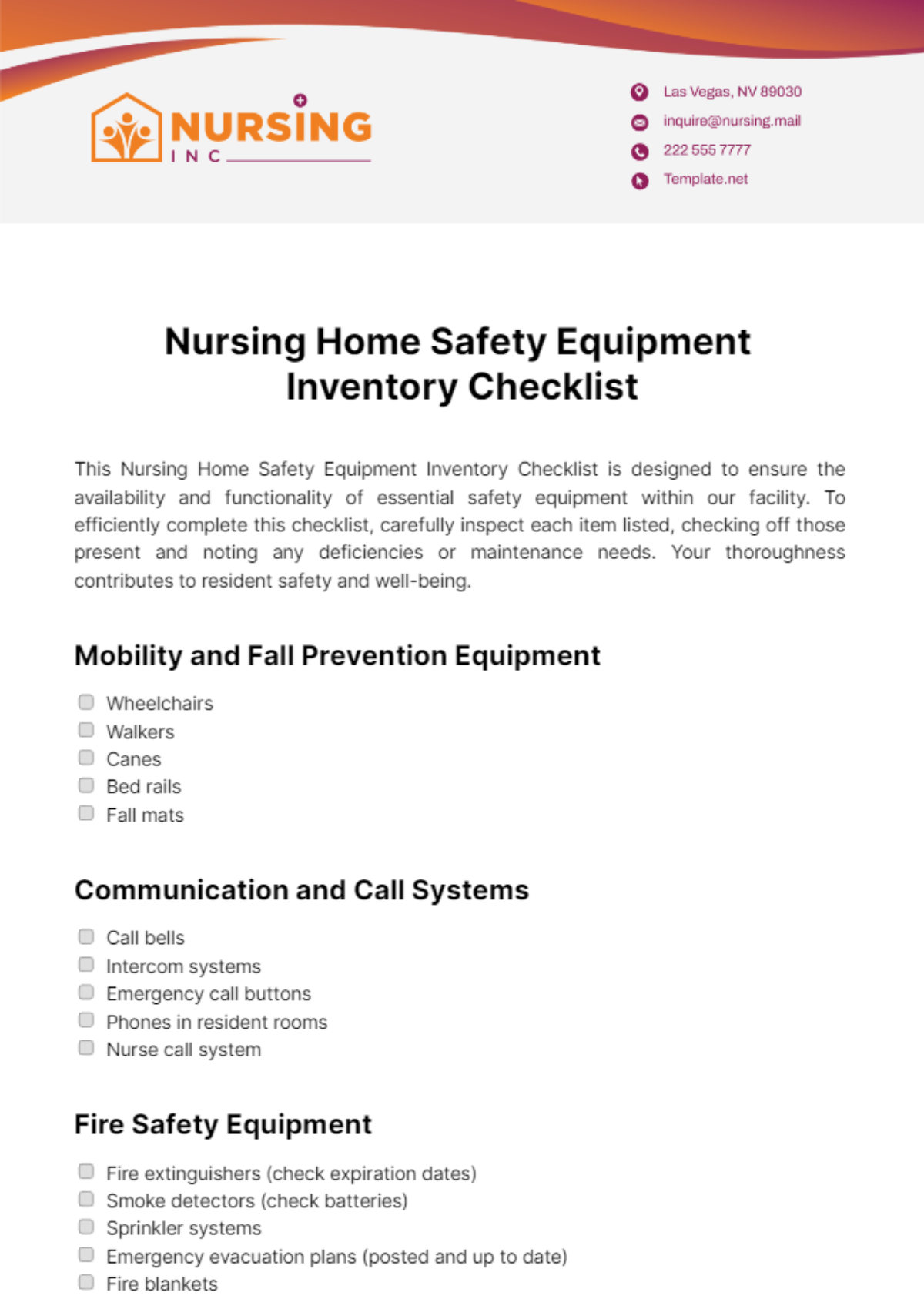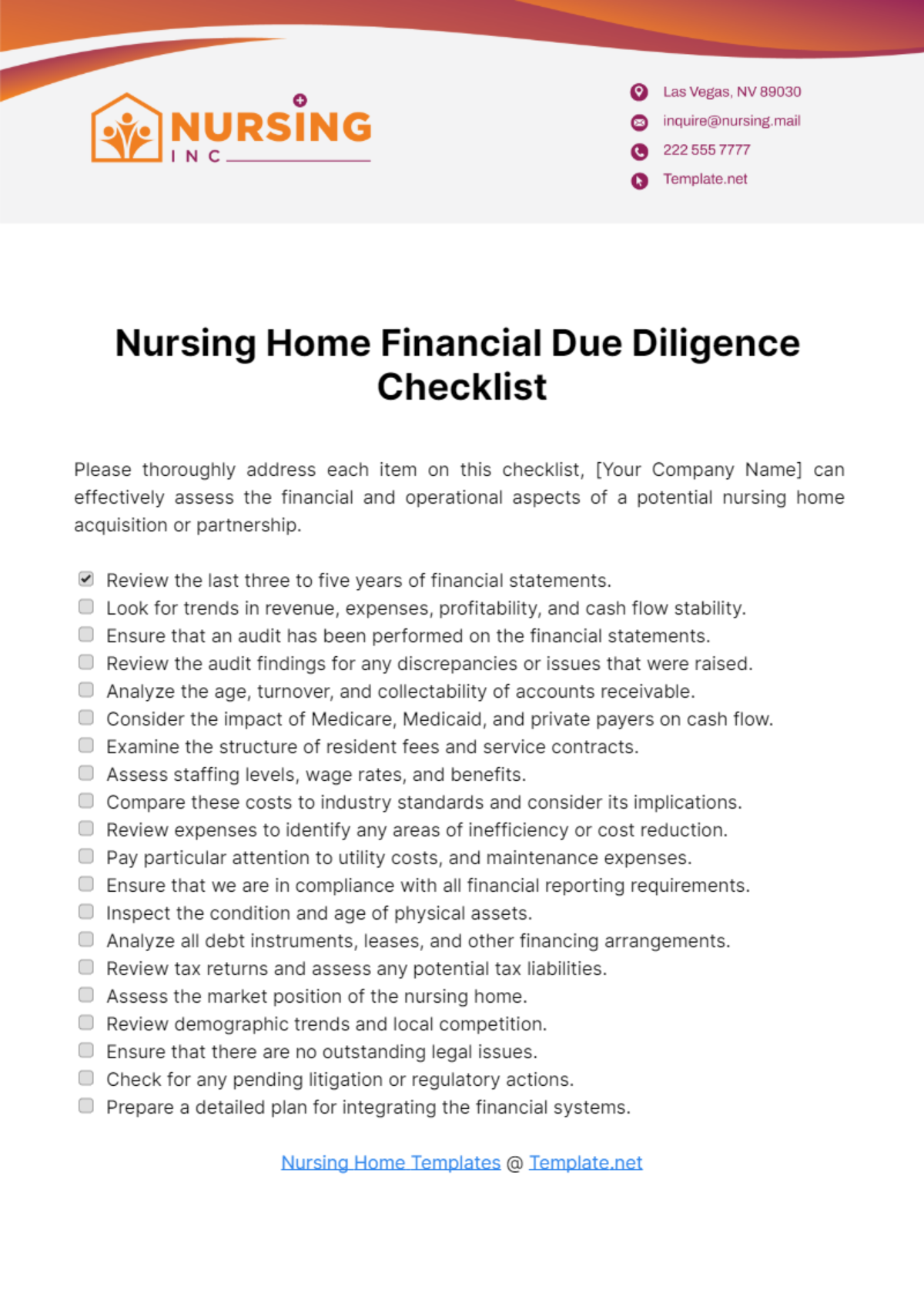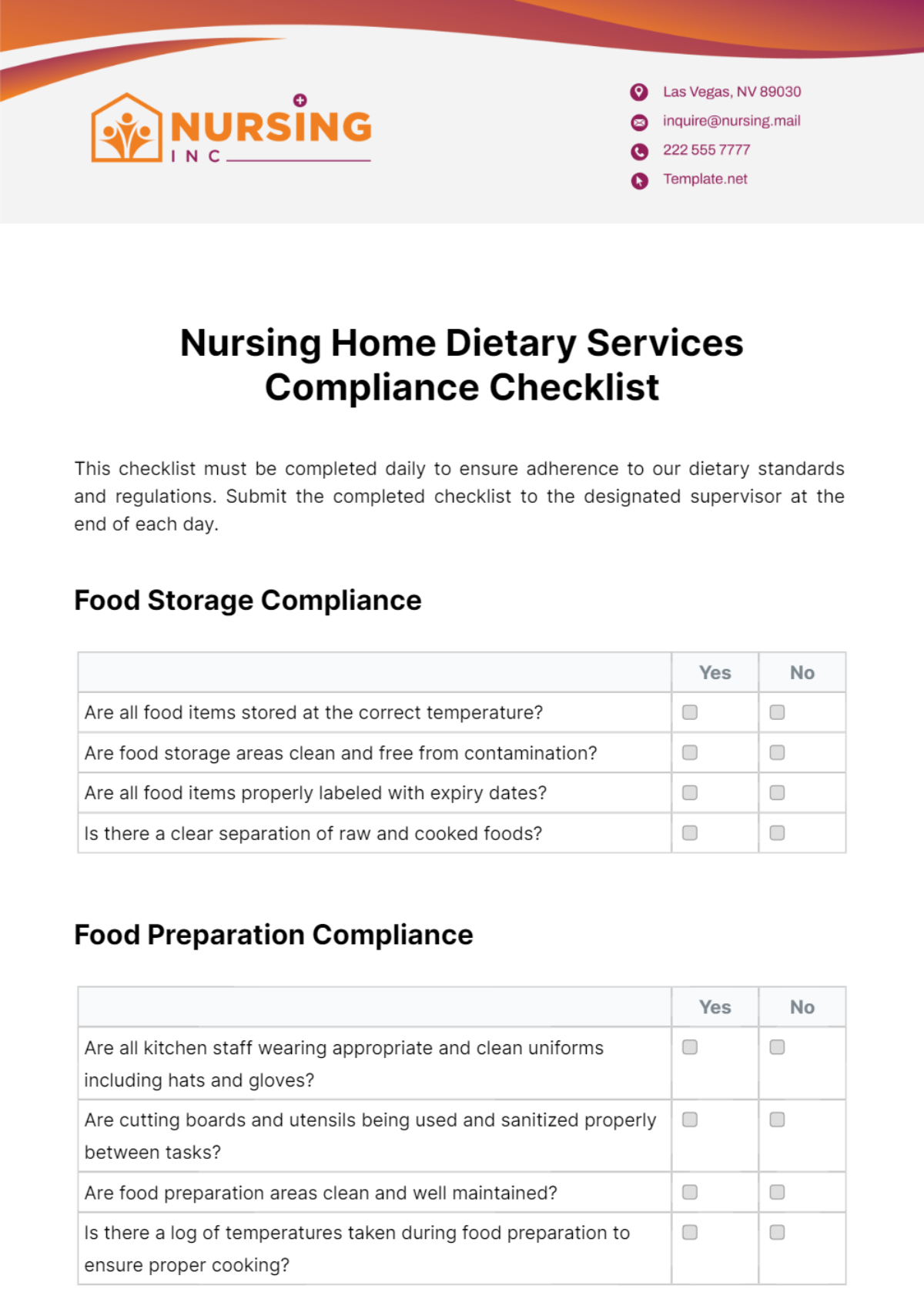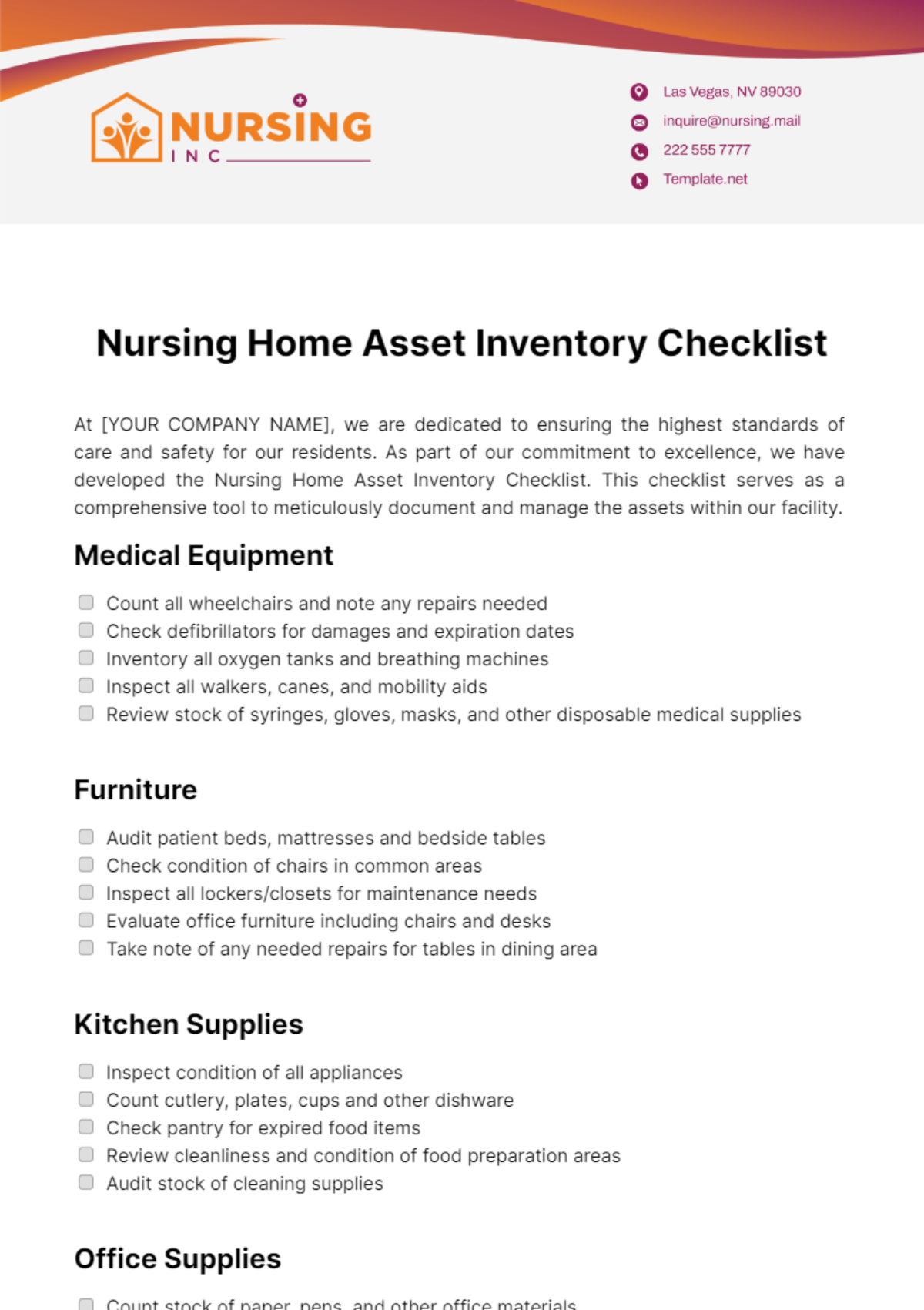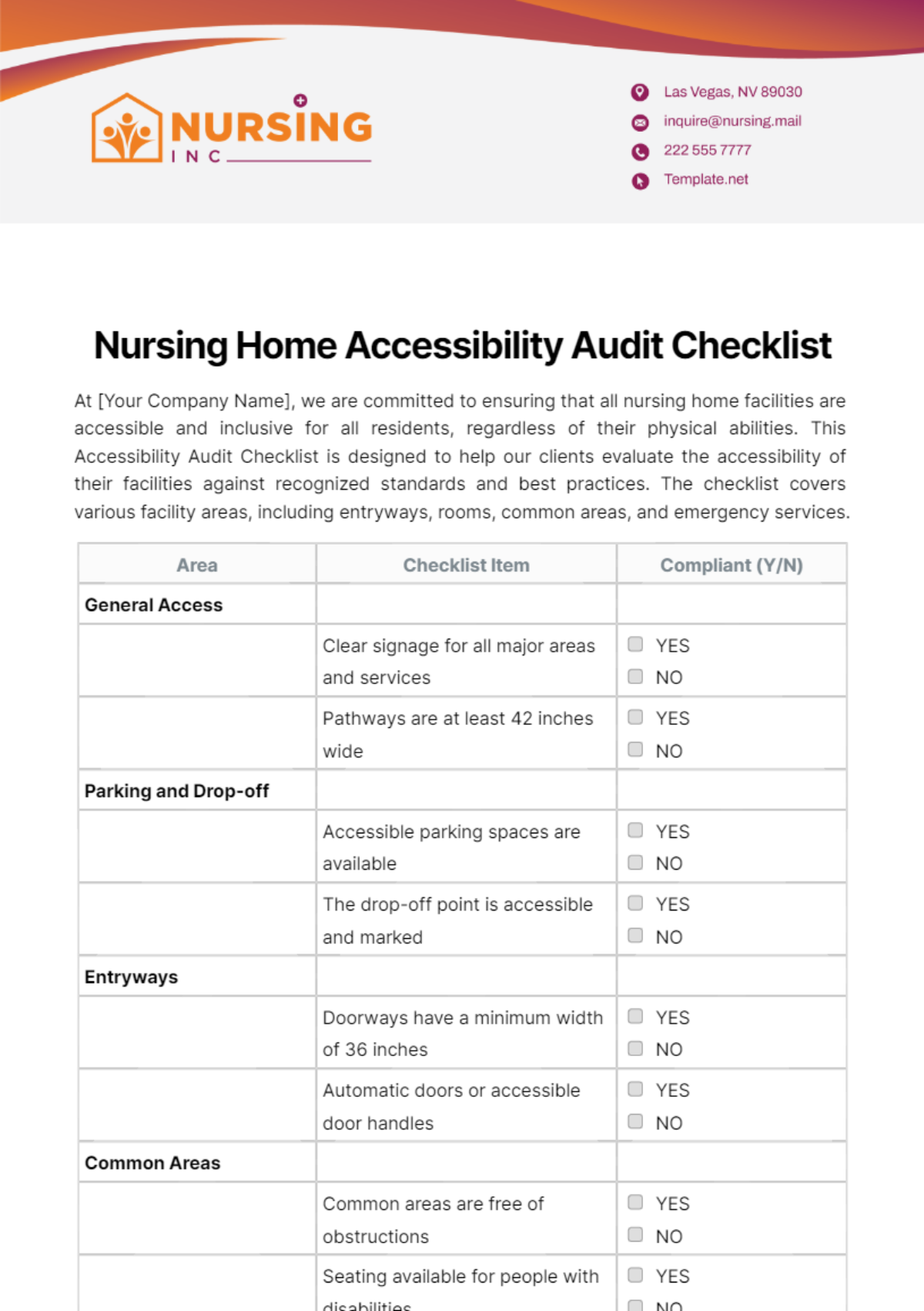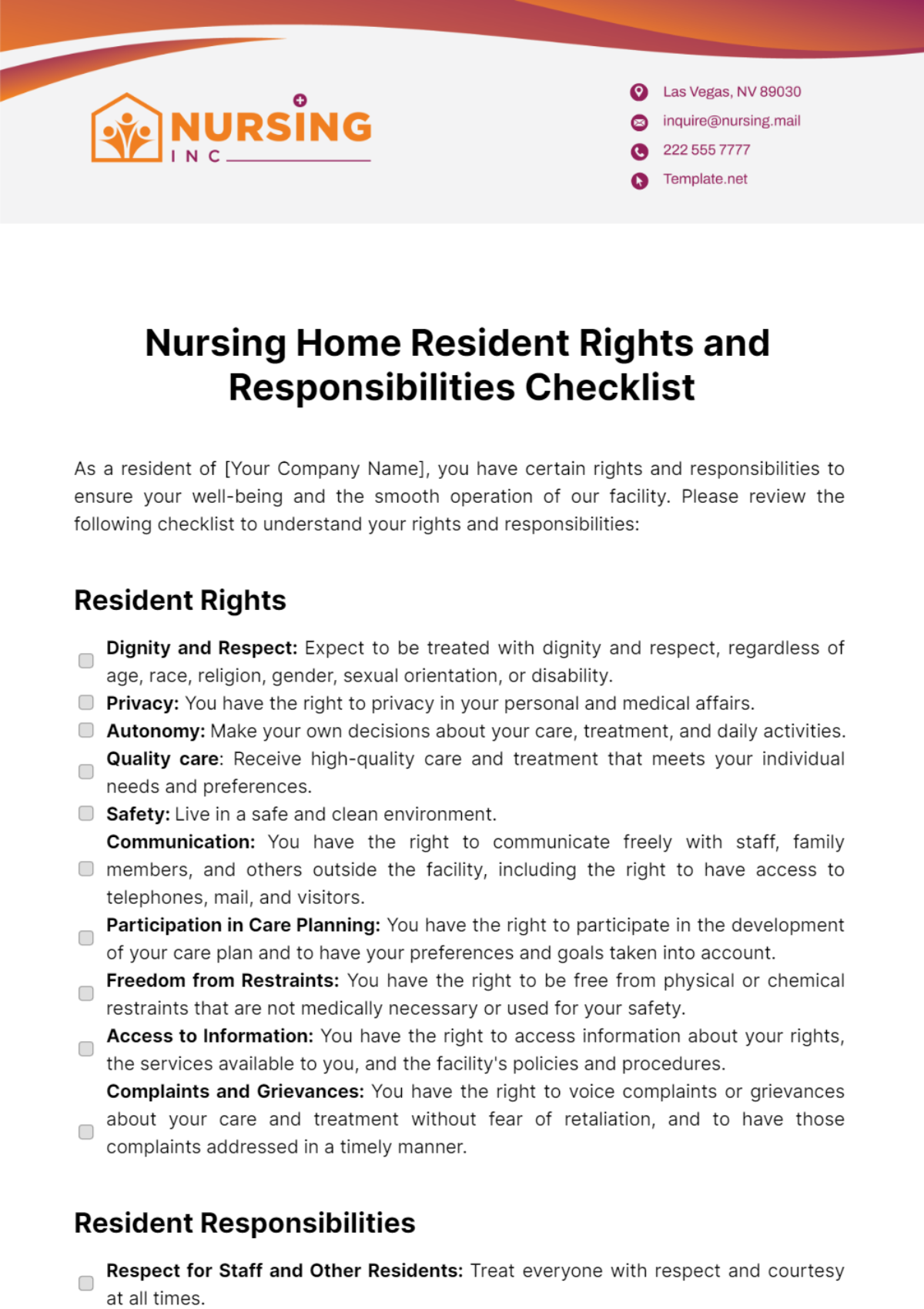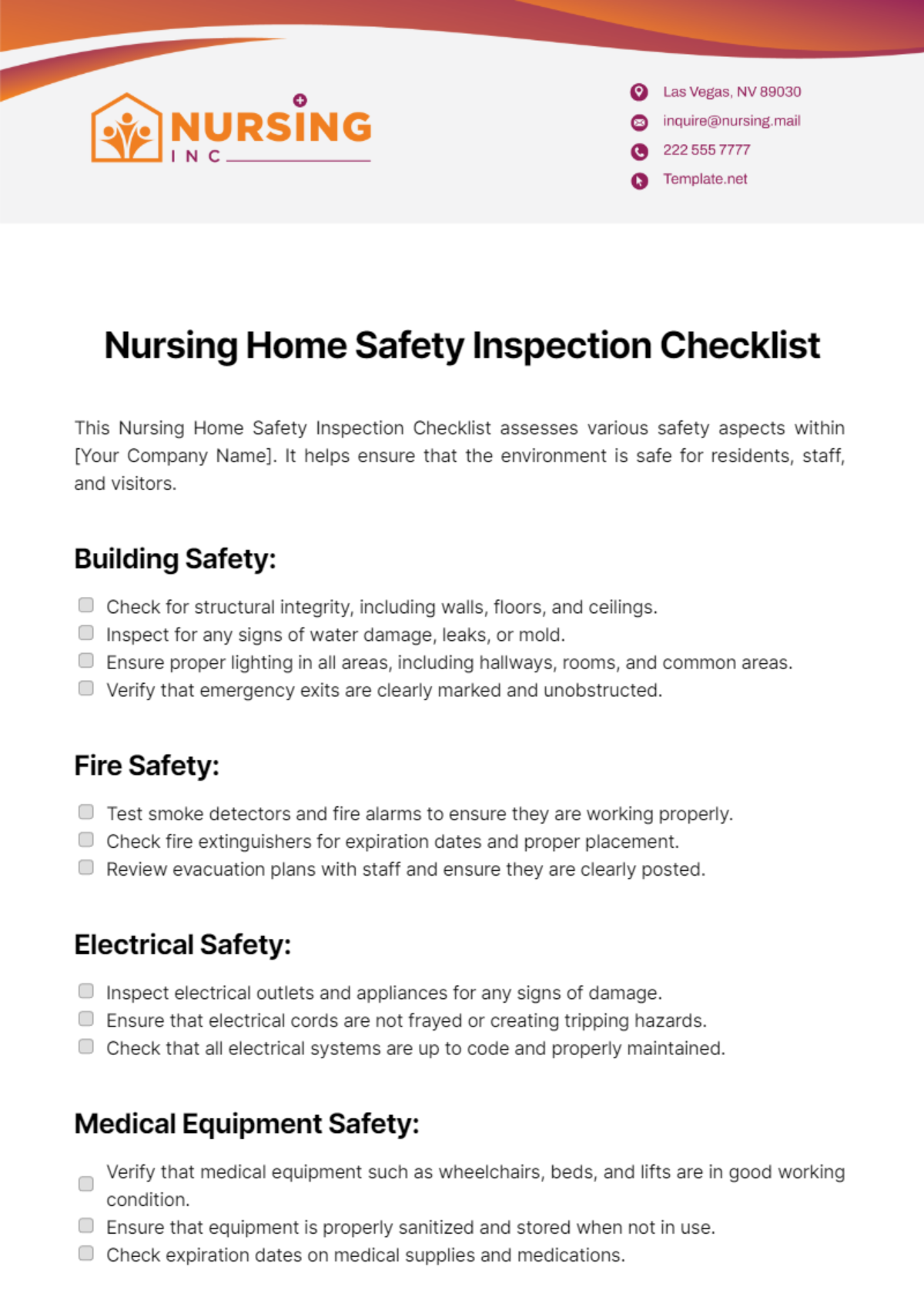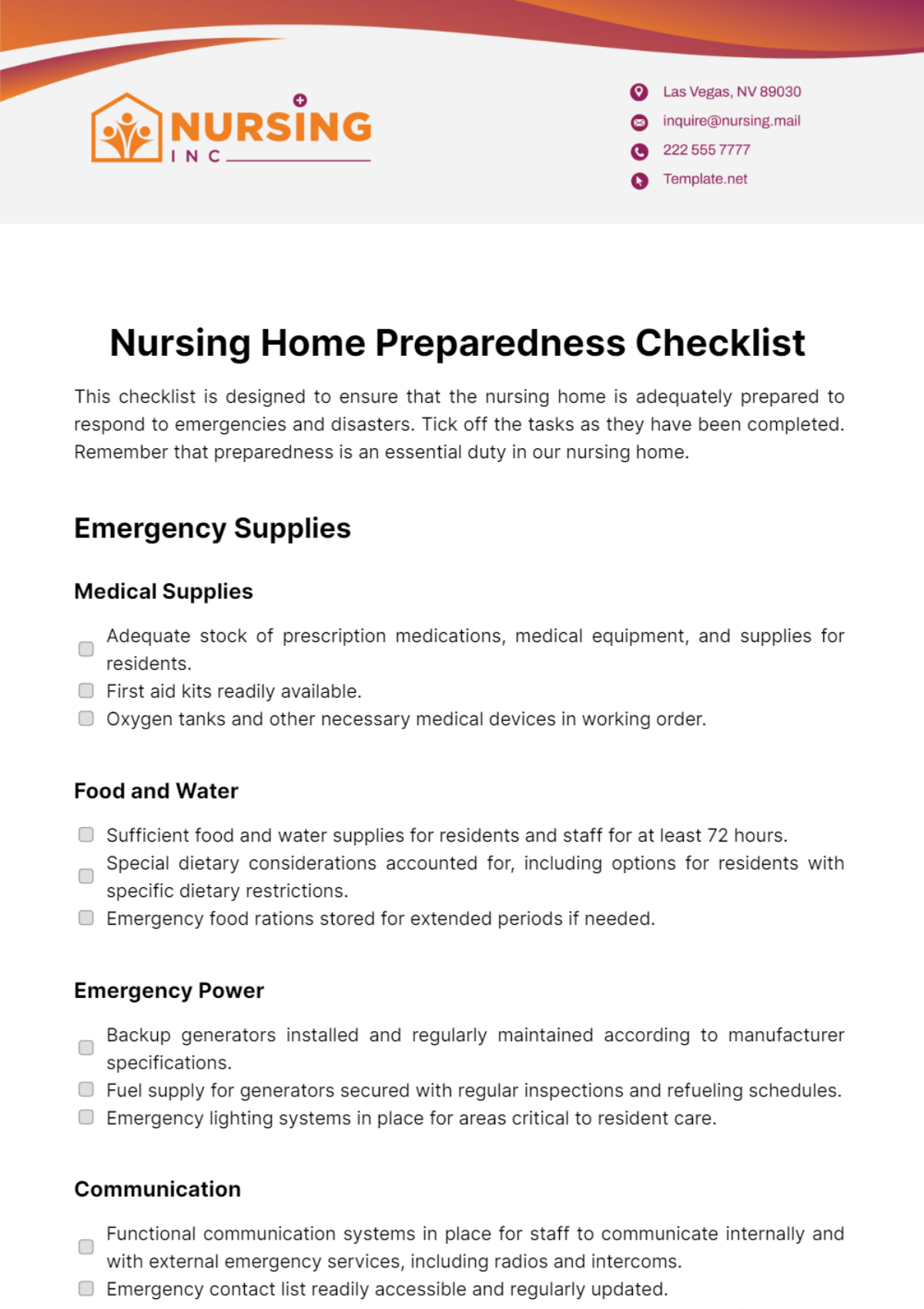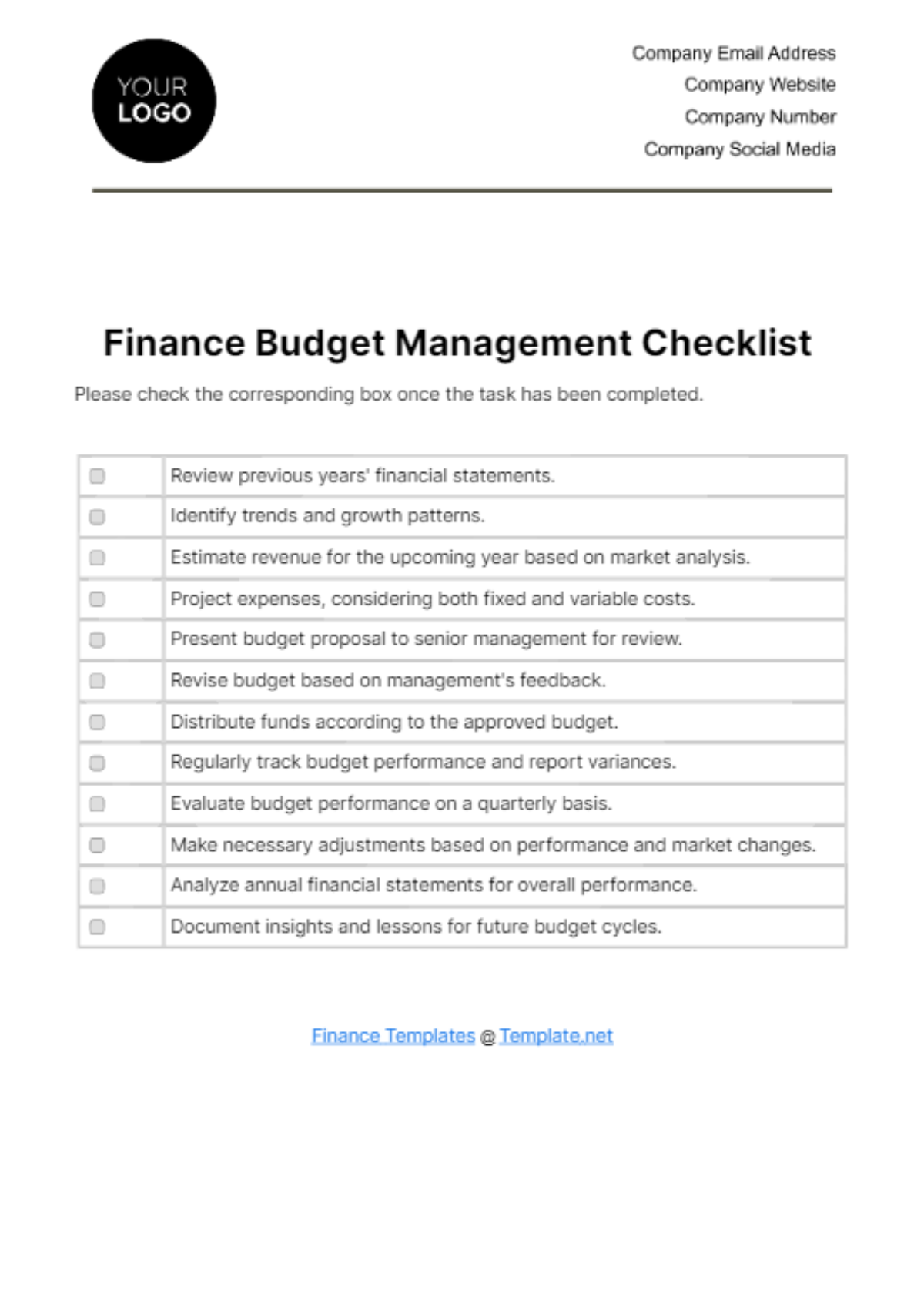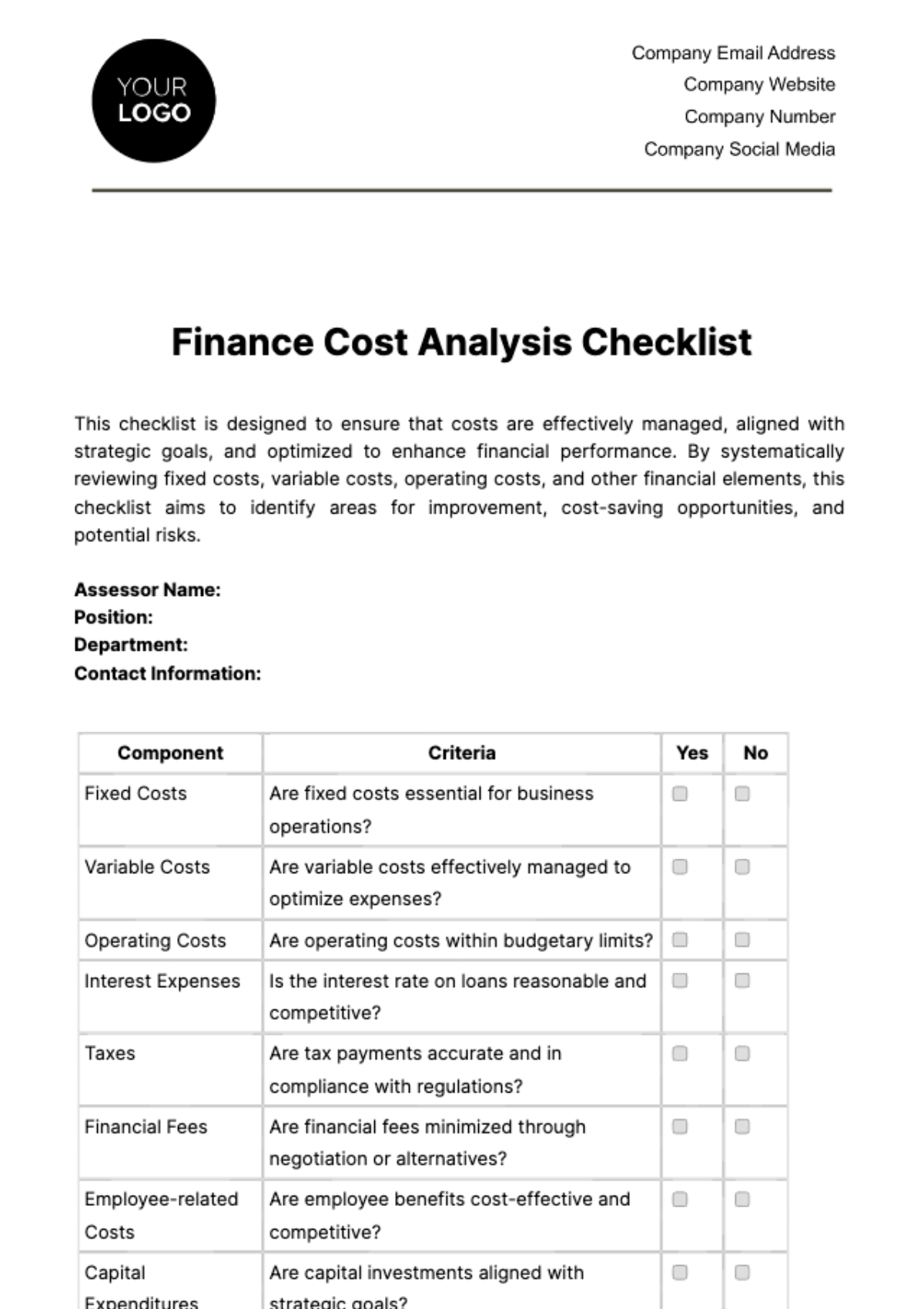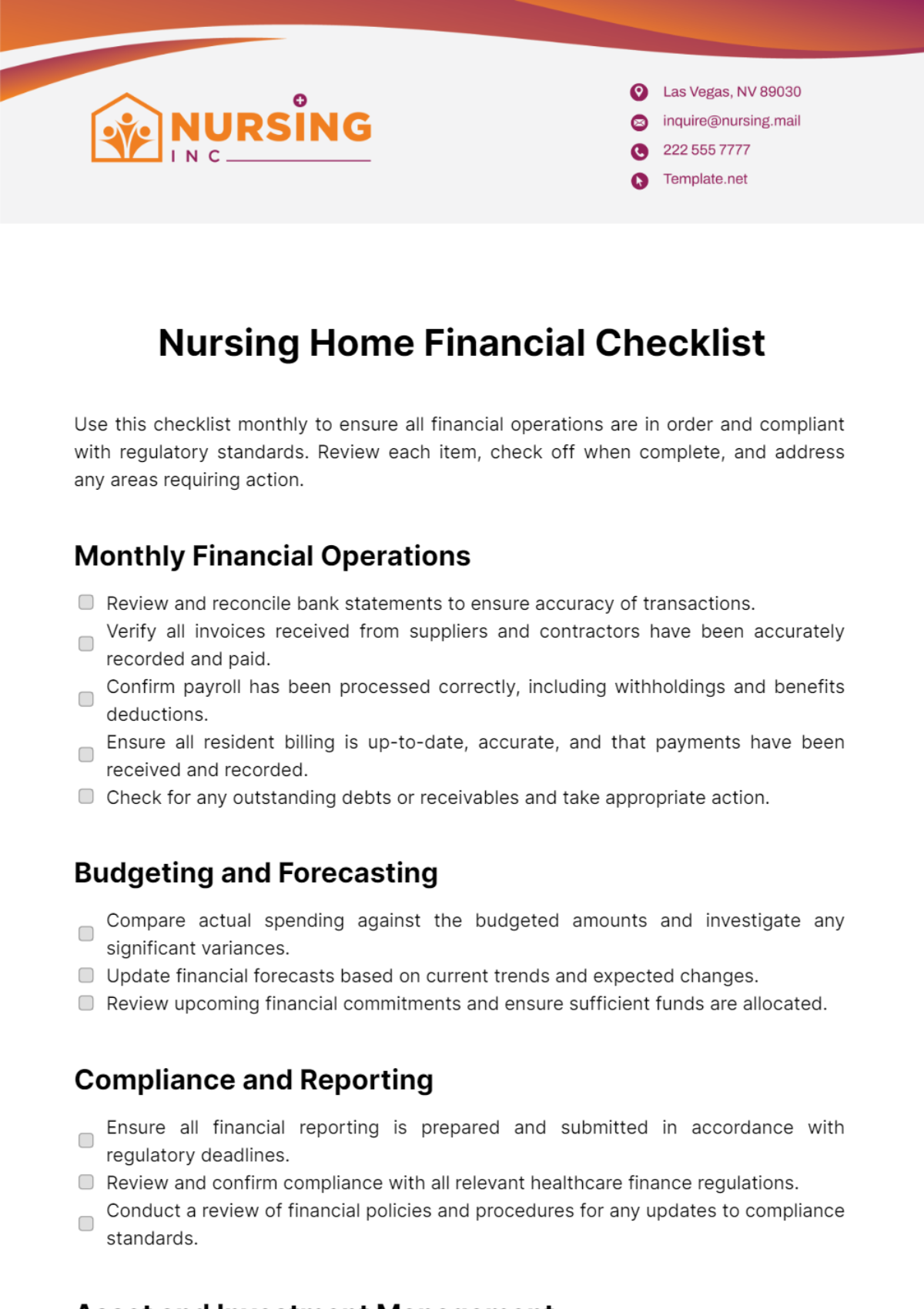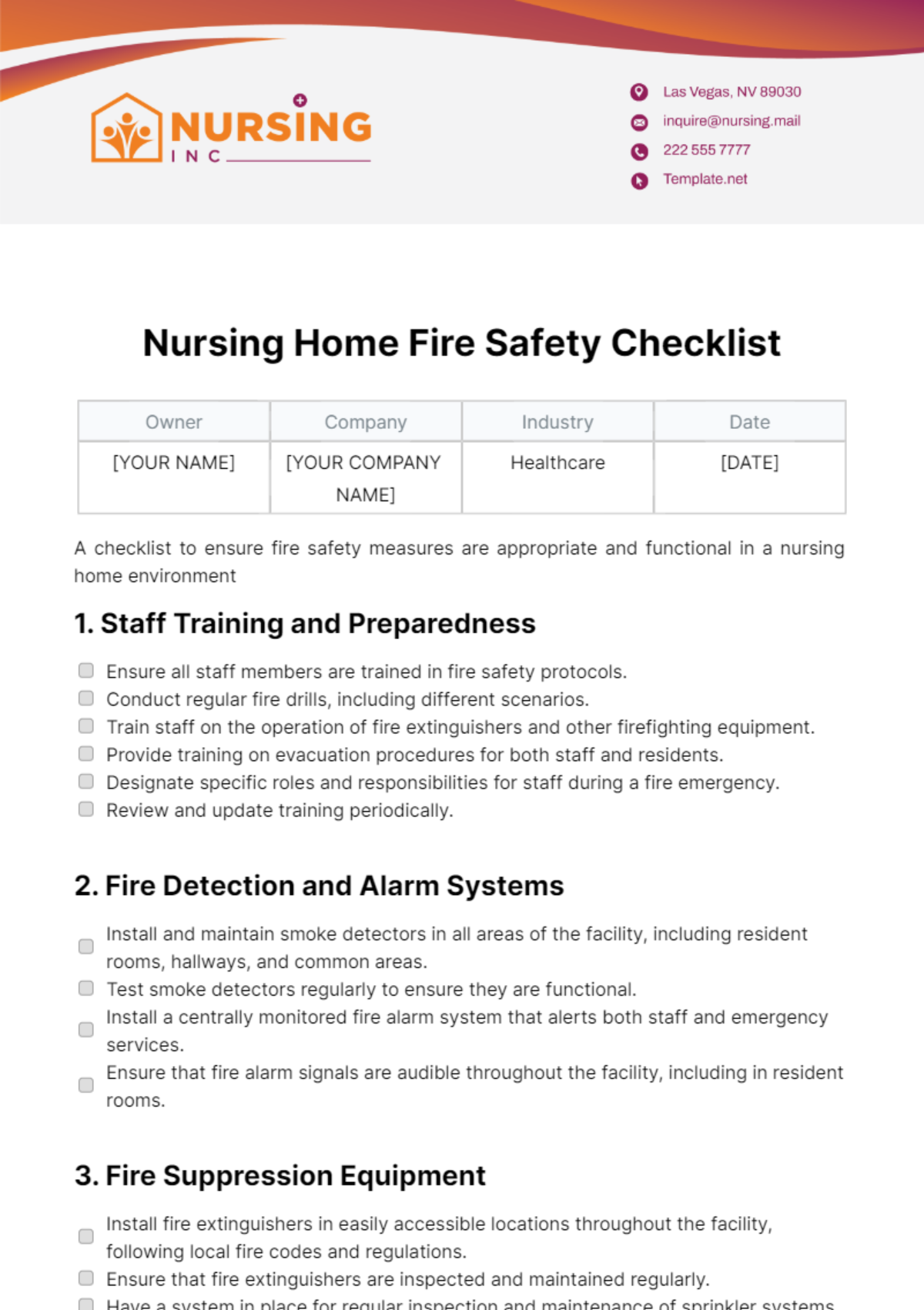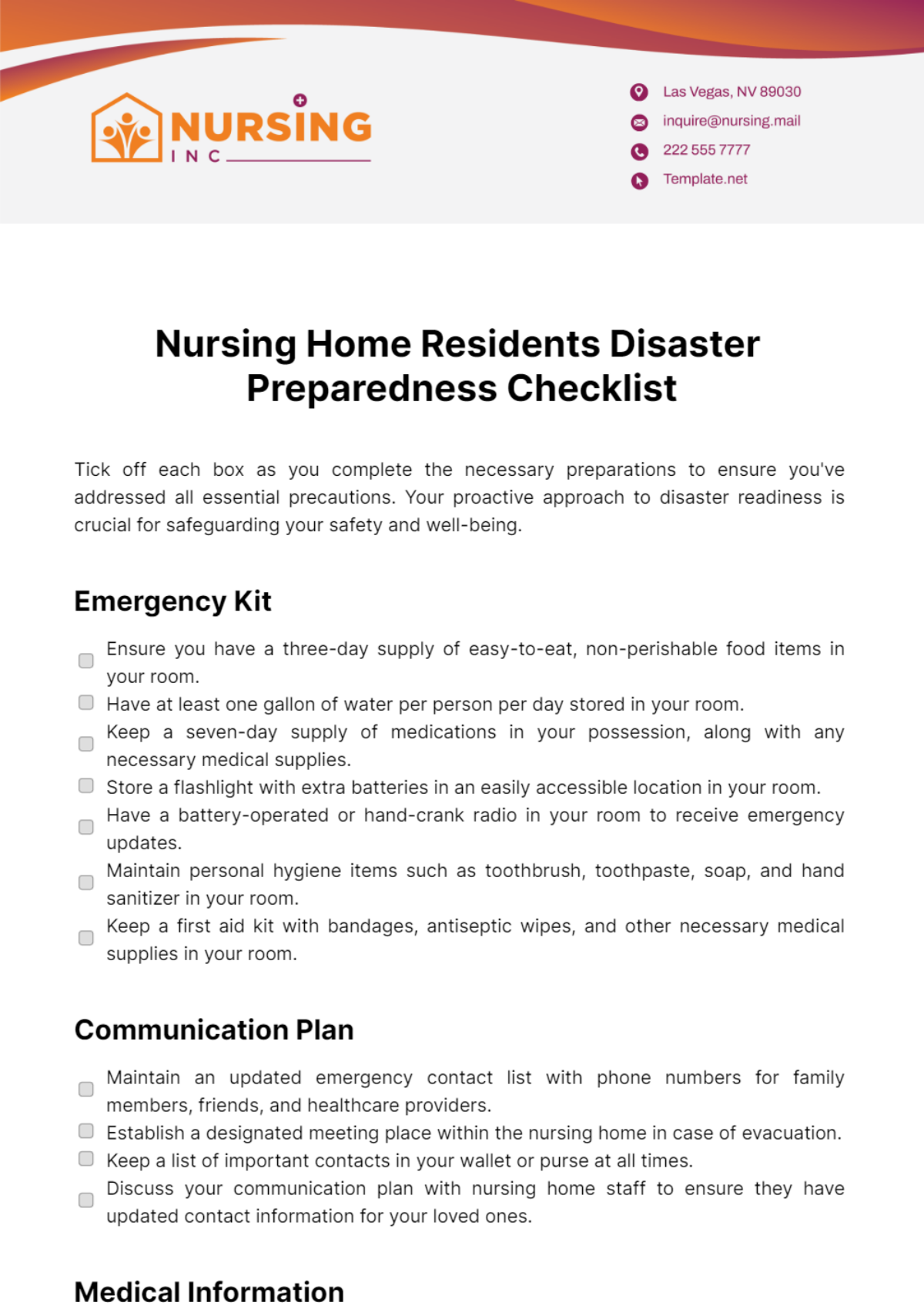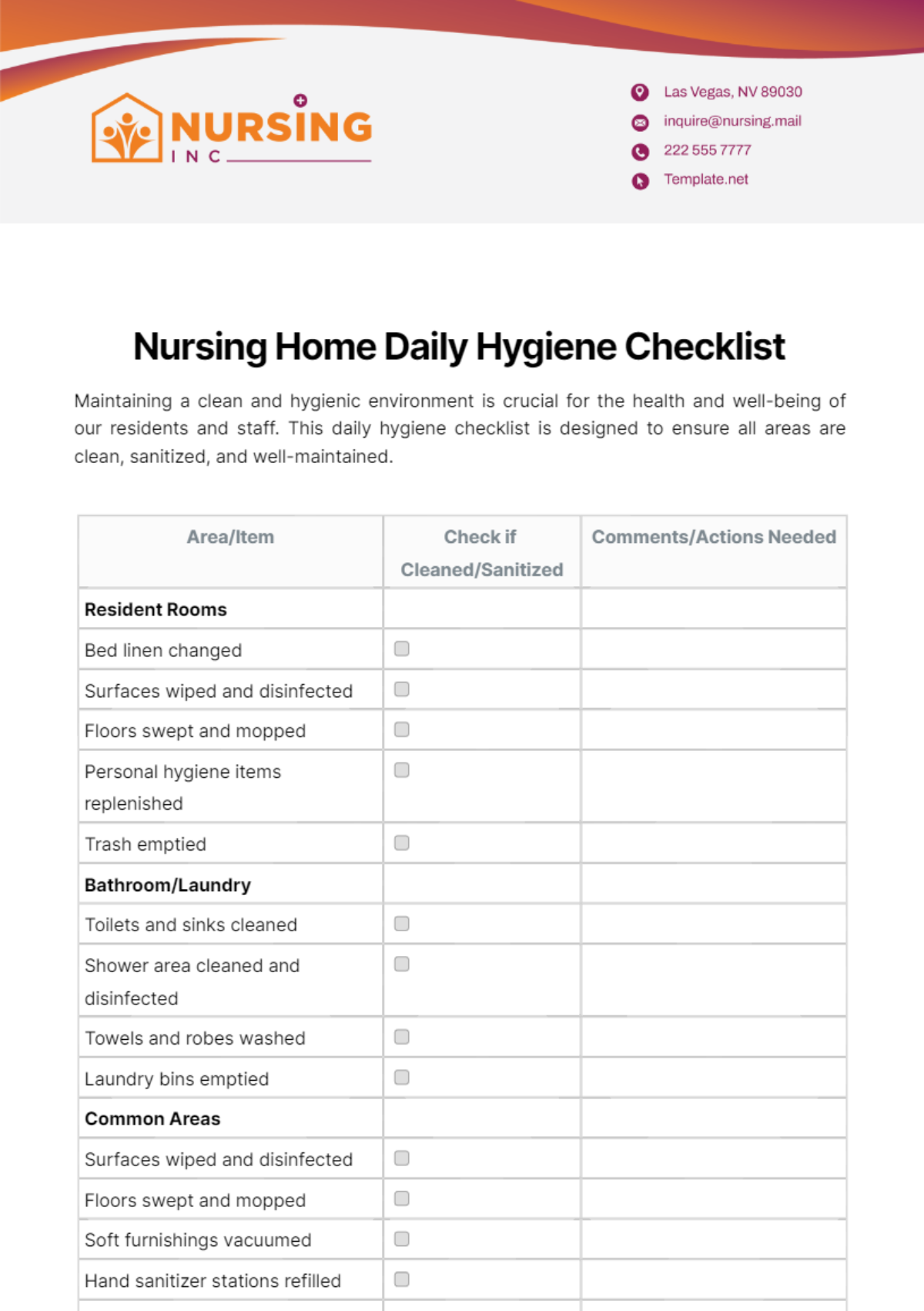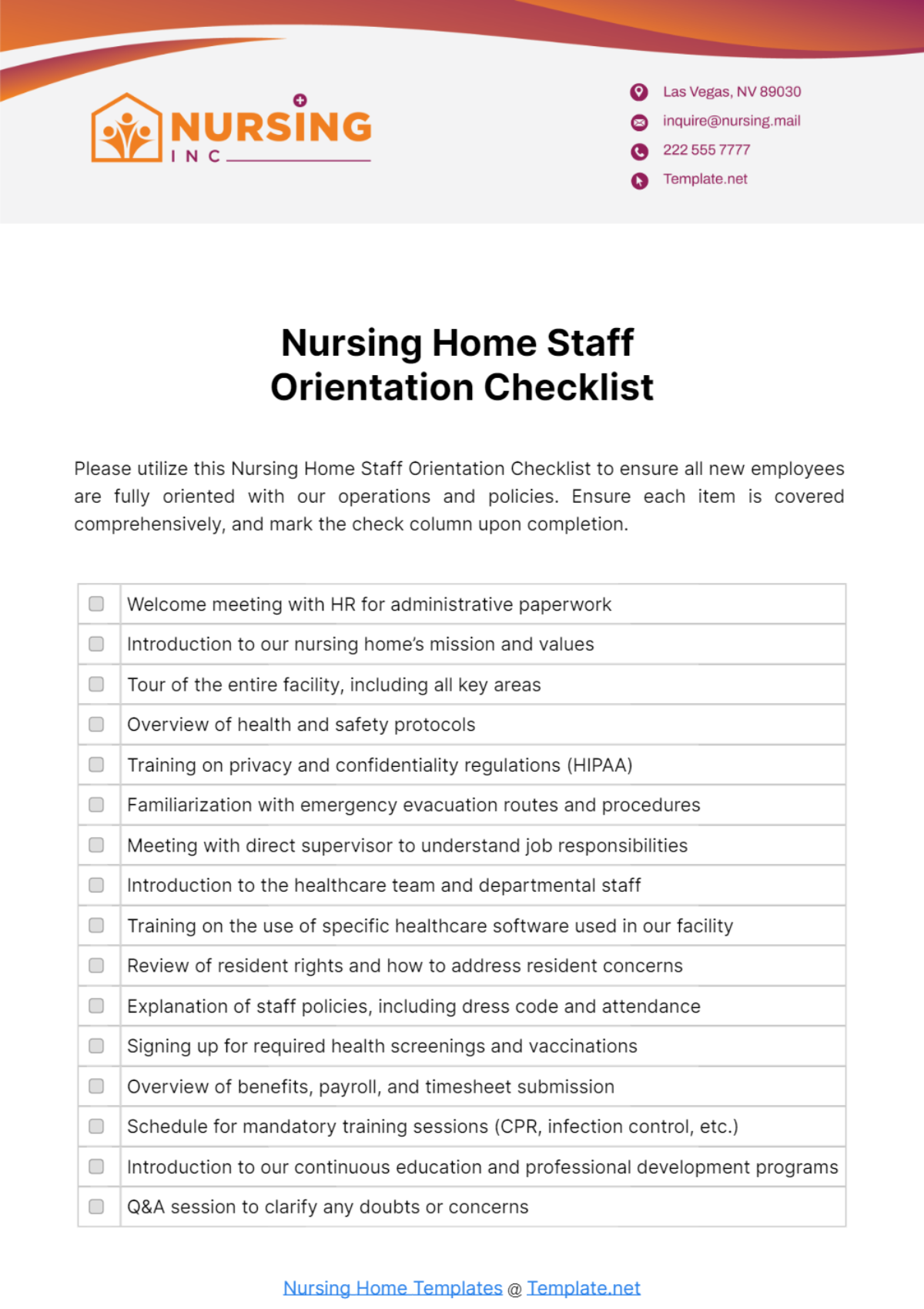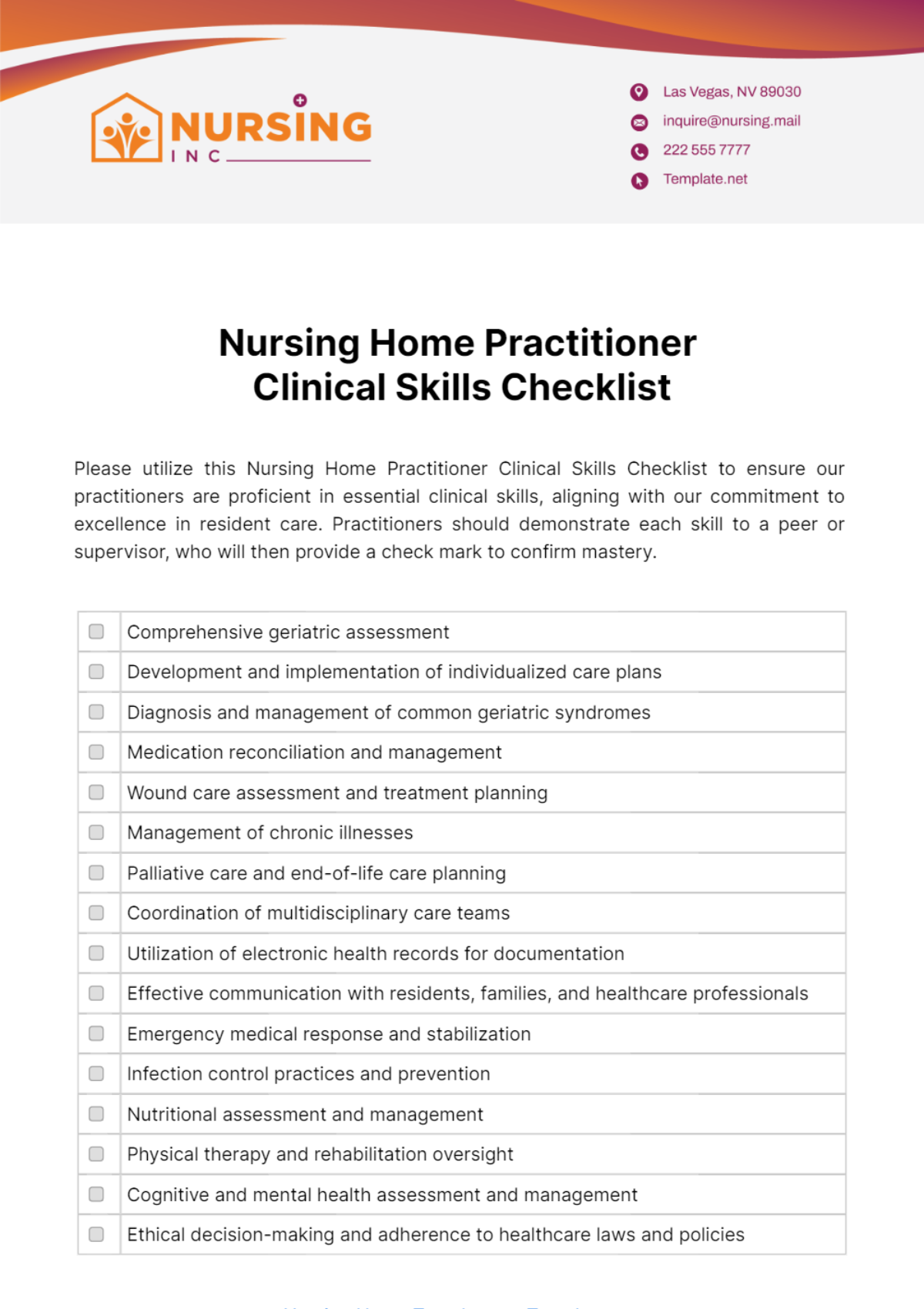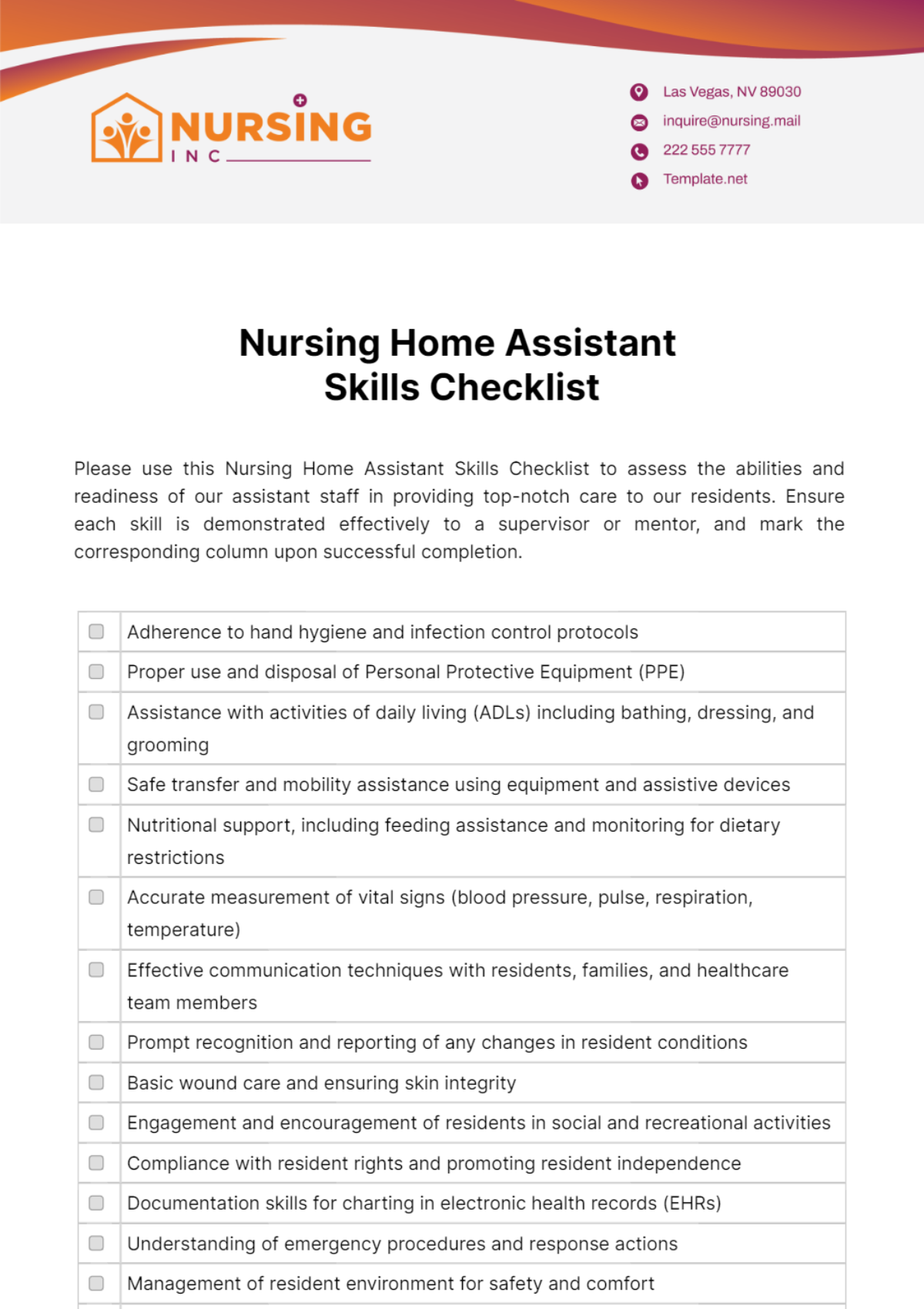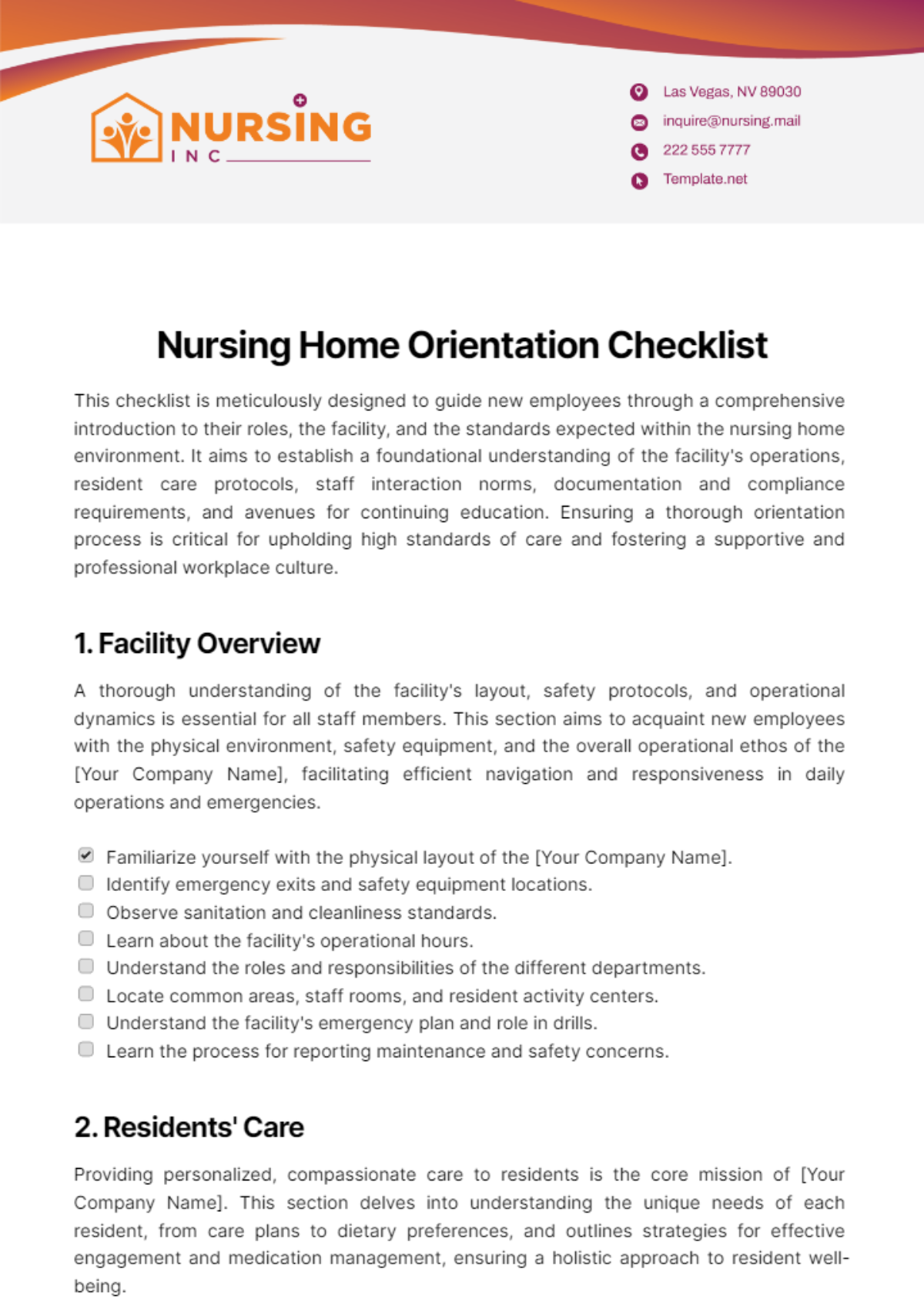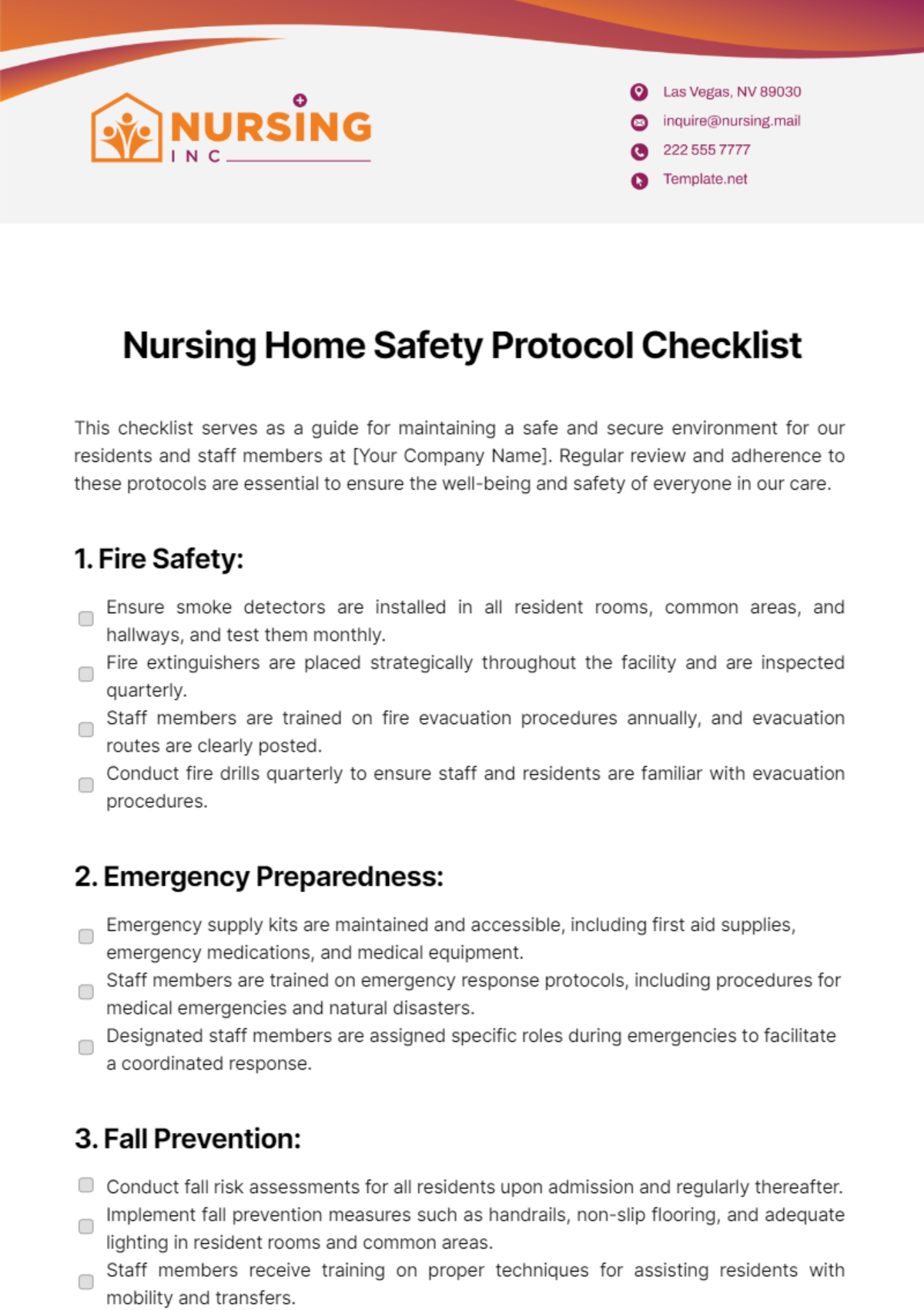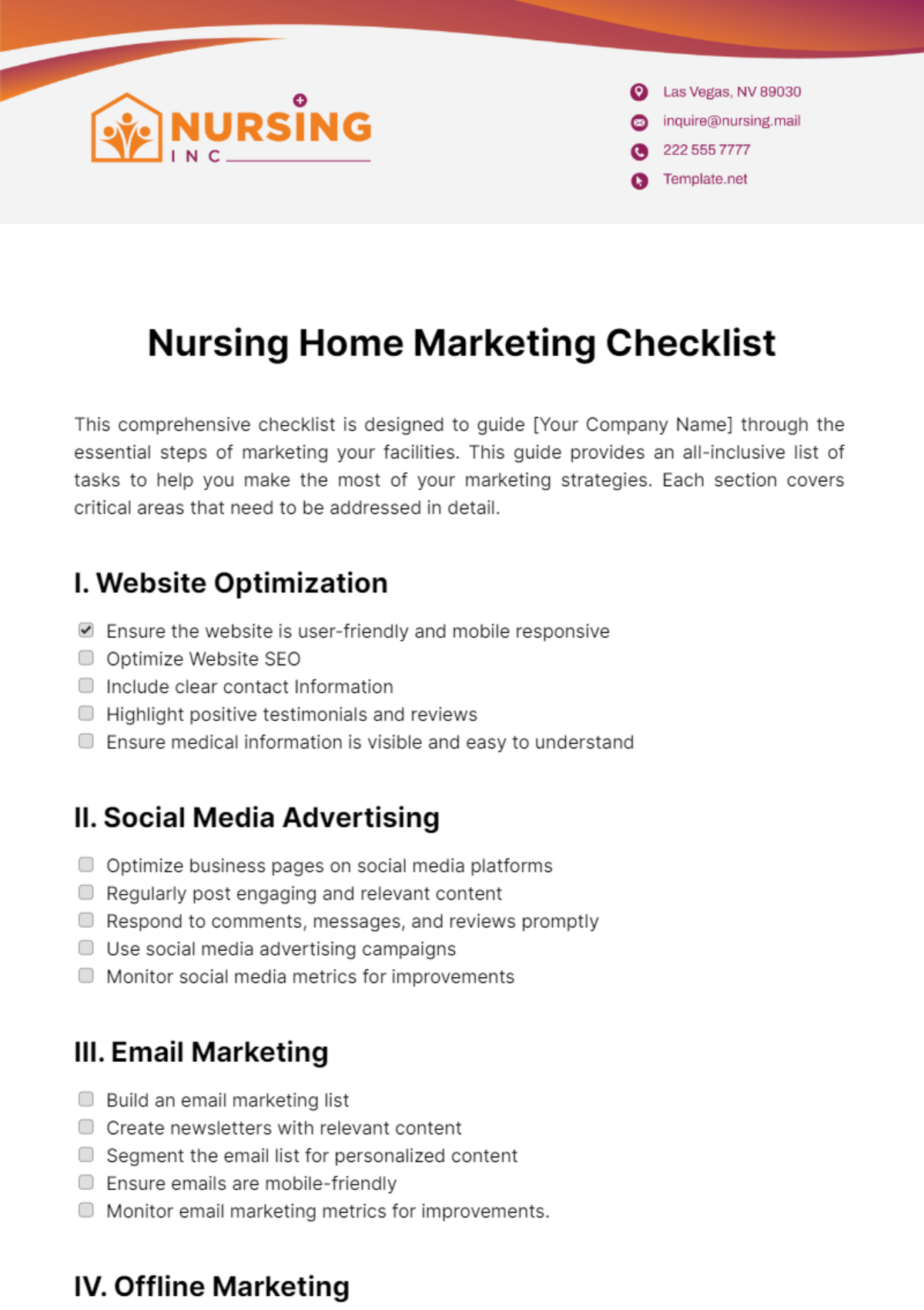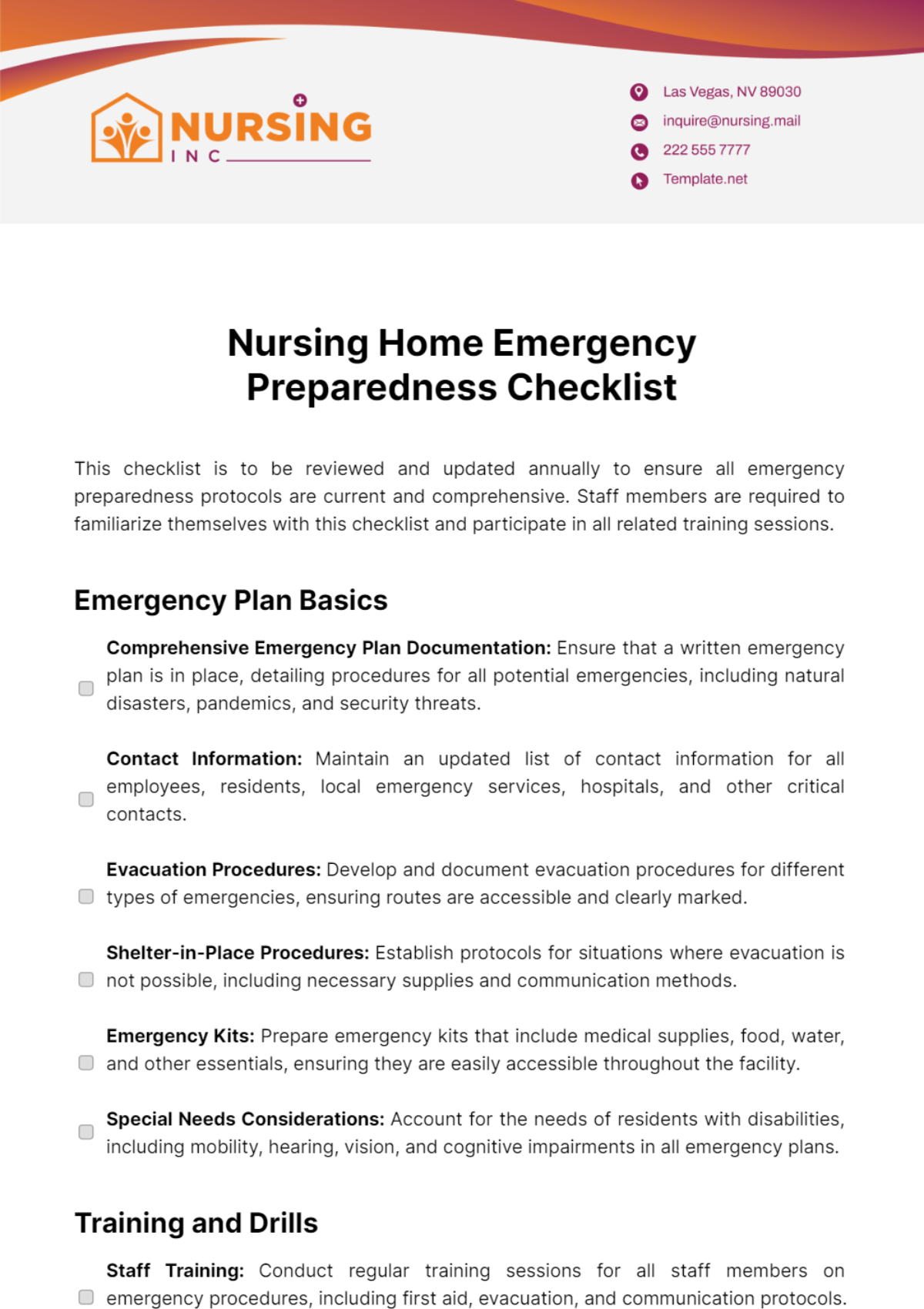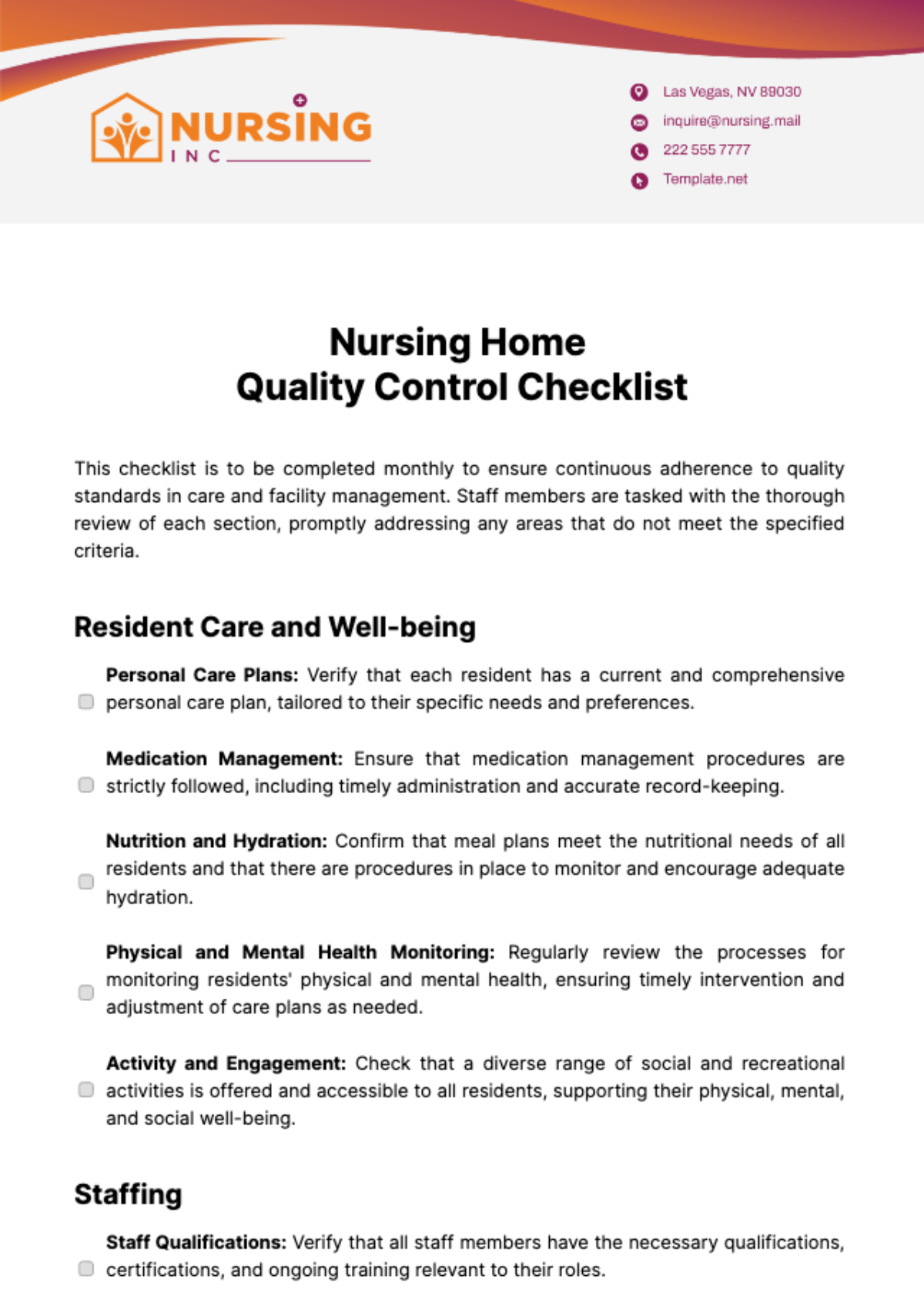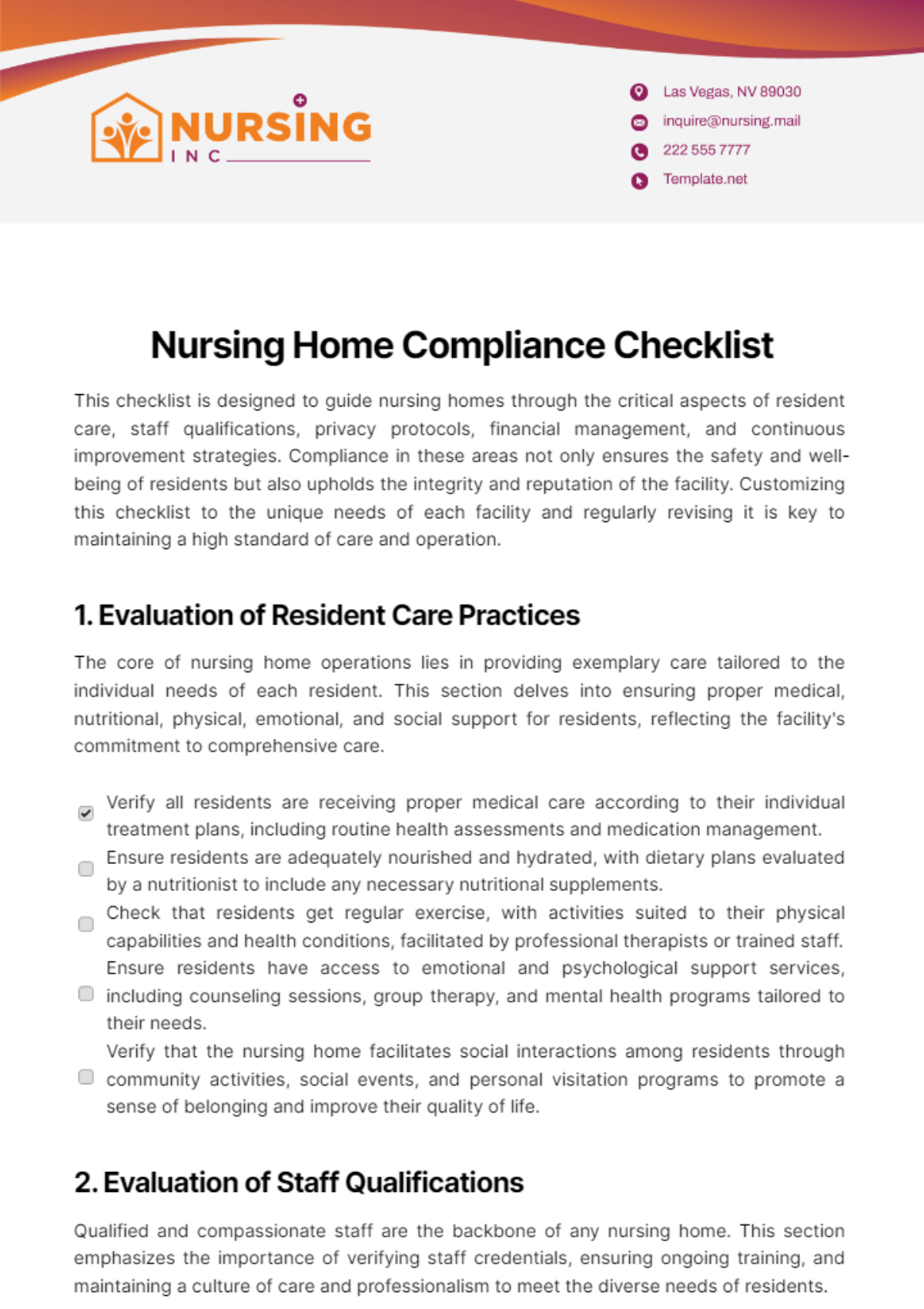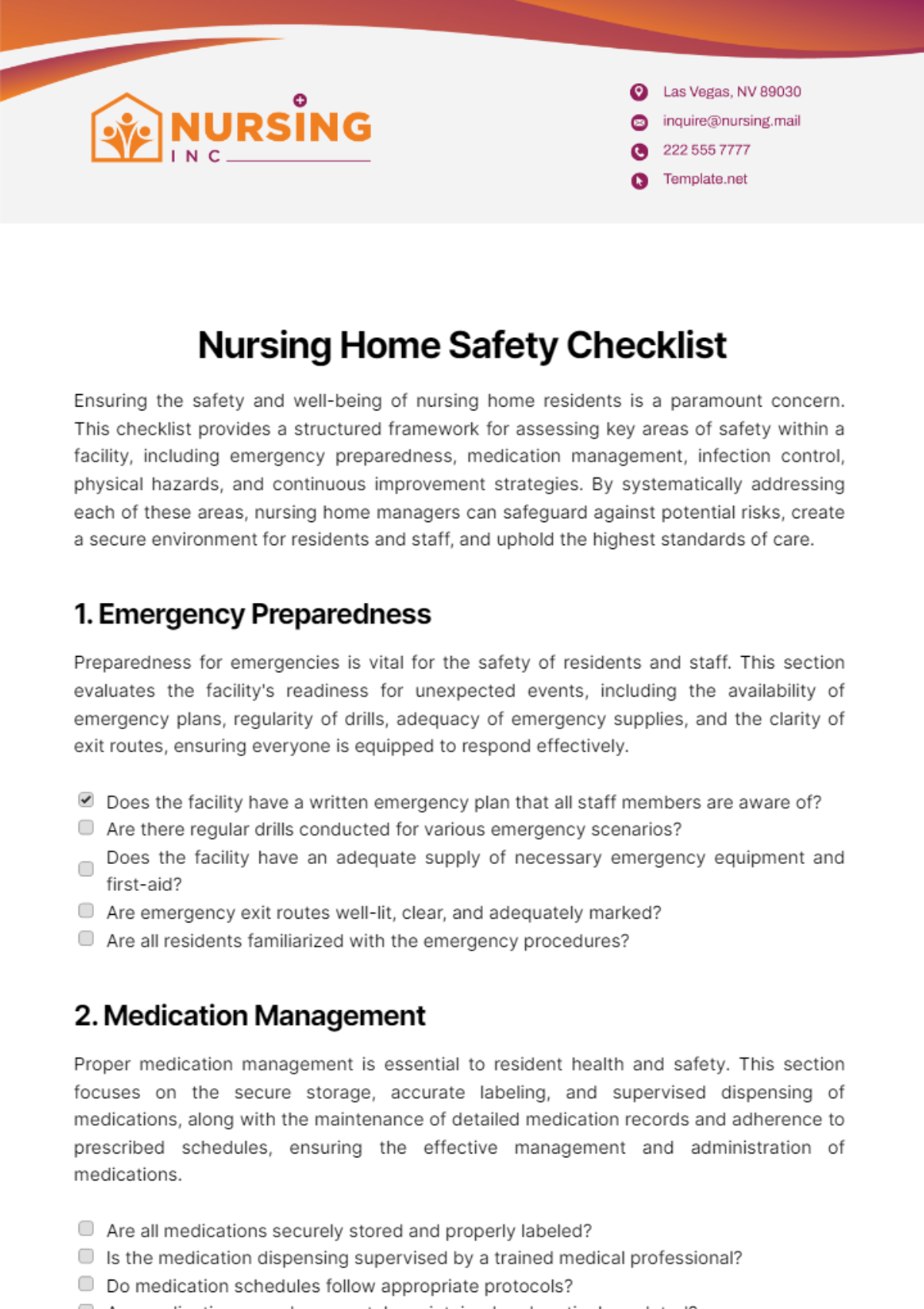Nursing Home Orientation Checklist
This checklist is meticulously designed to guide new employees through a comprehensive introduction to their roles, the facility, and the standards expected within the nursing home environment. It aims to establish a foundational understanding of the facility's operations, resident care protocols, staff interaction norms, documentation and compliance requirements, and avenues for continuing education. Ensuring a thorough orientation process is critical for upholding high standards of care and fostering a supportive and professional workplace culture.
1. Facility Overview
A thorough understanding of the facility's layout, safety protocols, and operational dynamics is essential for all staff members. This section aims to acquaint new employees with the physical environment, safety equipment, and the overall operational ethos of the [Your Company Name], facilitating efficient navigation and responsiveness in daily operations and emergencies.
Familiarize yourself with the physical layout of the [Your Company Name].
Identify emergency exits and safety equipment locations.
Observe sanitation and cleanliness standards.
Learn about the facility's operational hours.
Understand the roles and responsibilities of the different departments.
Locate common areas, staff rooms, and resident activity centers.
Understand the facility's emergency plan and role in drills.
Learn the process for reporting maintenance and safety concerns.
2. Residents' Care
Providing personalized, compassionate care to residents is the core mission of [Your Company Name]. This section delves into understanding the unique needs of each resident, from care plans to dietary preferences, and outlines strategies for effective engagement and medication management, ensuring a holistic approach to resident well-being.
Learn about the care plans for each resident.
Understand the dietary needs and preferences of residents.
Know the physical and mental health conditions of each resident.
Learn different strategies for behavior management and resident engagement.
Understand residents' medication schedules and administration methods.
Acquaint yourself with sensory stimulation activities for residents with dementia.
Learn about end-of-life care protocols and empathy practices.
Understand privacy and dignity standards in resident care.
3. Staff Interaction
Effective teamwork and professional interactions are pivotal for the smooth operation of [Your Company Name]. This section emphasizes the importance of adhering to professional standards, respecting the hierarchical structure, and fostering open communication among staff, cultivating a collaborative and respectful workplace.
Adhere to professional standards and acceptable behavior.
Attend staff meetings and contribute constructively.
Understand and respect the chain of command.
Share information and updates with relevant team members.
Receive and respond to feedback in a professional manner.
Familiarize yourself with conflict resolution and team-building activities.
Understand the process for escalating issues and concerns.
Learn about the support systems available for staff wellness and development.
4. Documentation & Compliance
Maintaining rigorous documentation and compliance with legal and ethical standards is non-negotiable in nursing home operations. This section covers the critical aspects of record-keeping, care plan updates, confidentiality, and adherence to regulations, ensuring accountability and the highest standard of care.
Maintain accurate records of residents' health status and care.
Update care plans regularly.
Adhere to legal and ethical standards in all actions.
Follow confidentiality and data privacy regulations.
Report any suspected violation or illegal act immediately.
Learn about electronic health record (EHR) systems and data entry protocols.
Understand the facility’s policies on mandatory reporting and abuse prevention.
Familiarize yourself with audit and inspection preparation procedures.
5. Continuing Education
Continuous learning and professional development are integral to advancing the quality of care in nursing homes. This section encourages staff to engage in ongoing education, seek mentorship, and set personal goals, fostering a culture of excellence and innovation in care practices.
Keep up-to-date on new nursing home standards and regulations.
Participate in training and certifications relevant to your role.
Read current literature on nursing home care and administration.
Seek mentorship and advice from experienced staff members.
Engage in self-reflection and goal setting to enhance performance.
Enroll in workshops on emerging care technologies and methods.
Participate in community outreach and inter-facility exchange programs.
Utilize available resources for stress management and self-care techniques.
Prepared By: [Your Name]
